Home Heating Solutions
How to Excel in HVAC Heat Pump Maintenance

Are you ready to master the art of HVAC heat pump maintenance? We’ve got you covered.
In this article, we’ll share the insider tips and tricks to excel in keeping your heat pump in prime condition. From understanding the components to cleaning and adjusting settings, we’ll guide you through the essential steps.
Get ready to become a heat pump maintenance pro and ensure optimal performance year-round.
Let’s dive in and elevate your HVAC game.
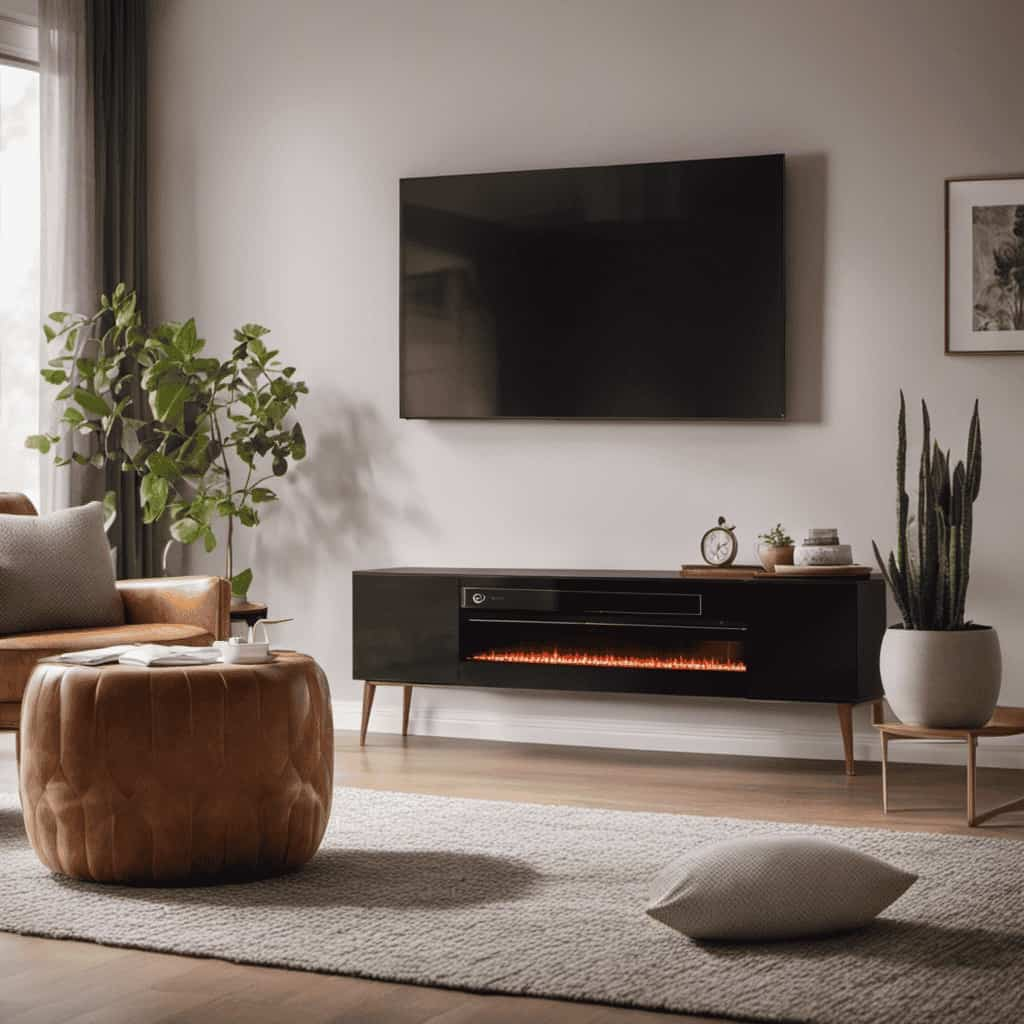
Key Takeaways
- Regular maintenance is important for identifying and addressing minor issues before they escalate.
- Cleaning and changing air filters regularly ensures efficient operation and prolongs the life of the heat pump.
- Checking and adjusting thermostat settings ensures optimal heat pump performance.
- Inspecting and cleaning the outdoor unit regularly improves performance, efficiency, and indoor air quality.
Importance of Regular Maintenance
We should prioritize regular maintenance to ensure optimal performance and longevity of our HVAC heat pumps.
Regular maintenance offers numerous benefits and is an essential part of keeping our systems running smoothly.
One of the key advantages of regular maintenance is that it helps to identify and address minor issues before they escalate into major problems. By detecting and fixing these issues early on, we can prevent costly breakdowns and repairs in the future.
Additionally, regular maintenance helps to improve energy efficiency, resulting in lower energy bills. It also extends the lifespan of our HVAC heat pumps, saving us money in the long run.

Understanding the Components of a Heat Pump
Let’s delve into the various components that make up a heat pump to gain a better understanding of its functionality. Understanding refrigerant flow is crucial to comprehending how a heat pump operates efficiently. Here are the key components involved:
-
Evaporator Coil: This component extracts heat from the air or ground and evaporates the refrigerant.
-
Compressor: Responsible for compressing the refrigerant, increasing its temperature and pressure.
-
Condenser Coil: Releases the heat absorbed from the evaporator coil into the surrounding air or ground.
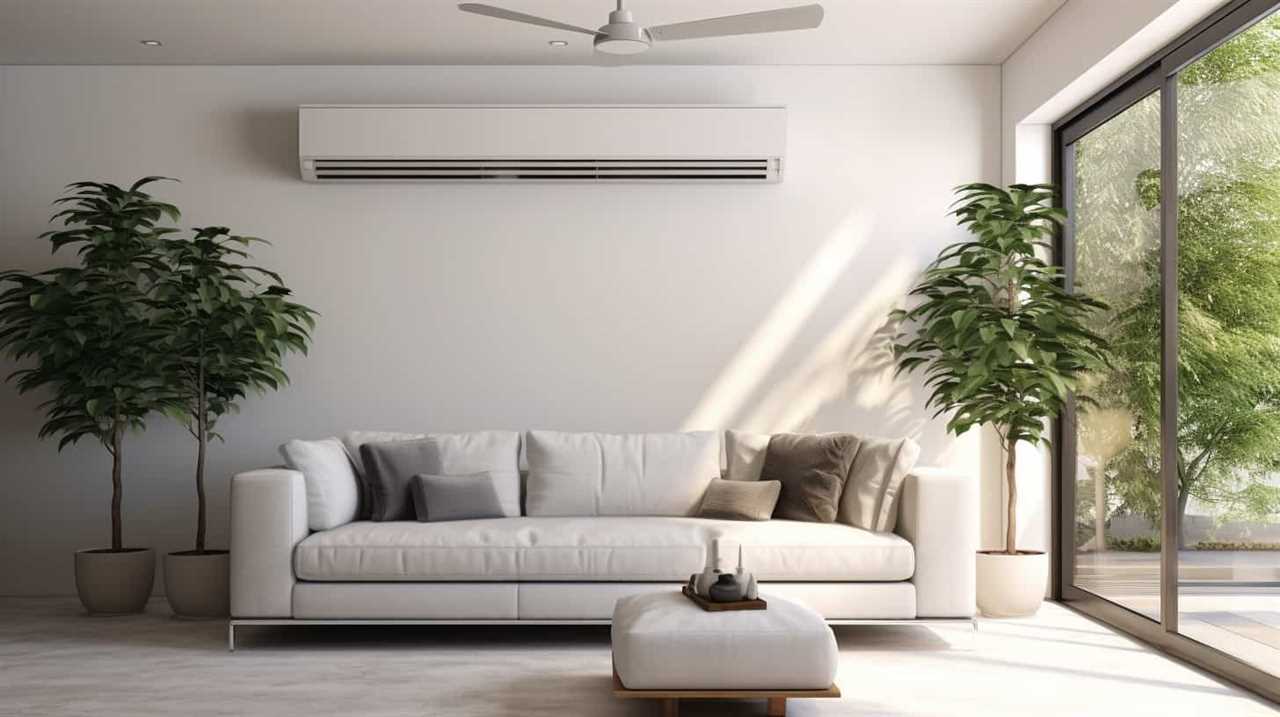
-
Expansion Valve: Controls the flow of refrigerant into the evaporator coil, allowing it to expand and cool down.
By troubleshooting common component issues such as refrigerant leaks, clogged coils, or faulty valves, you can ensure optimal heat pump performance.
Now, let’s move on to the next section about cleaning and changing air filters, which is another essential aspect of heat pump maintenance.
Cleaning and Changing Air Filters
To maintain optimal performance, it’s important for us to regularly clean and change the air filters in our HVAC heat pump. Air filter maintenance is crucial in ensuring efficient operation and preventing dust and debris buildup in the system.
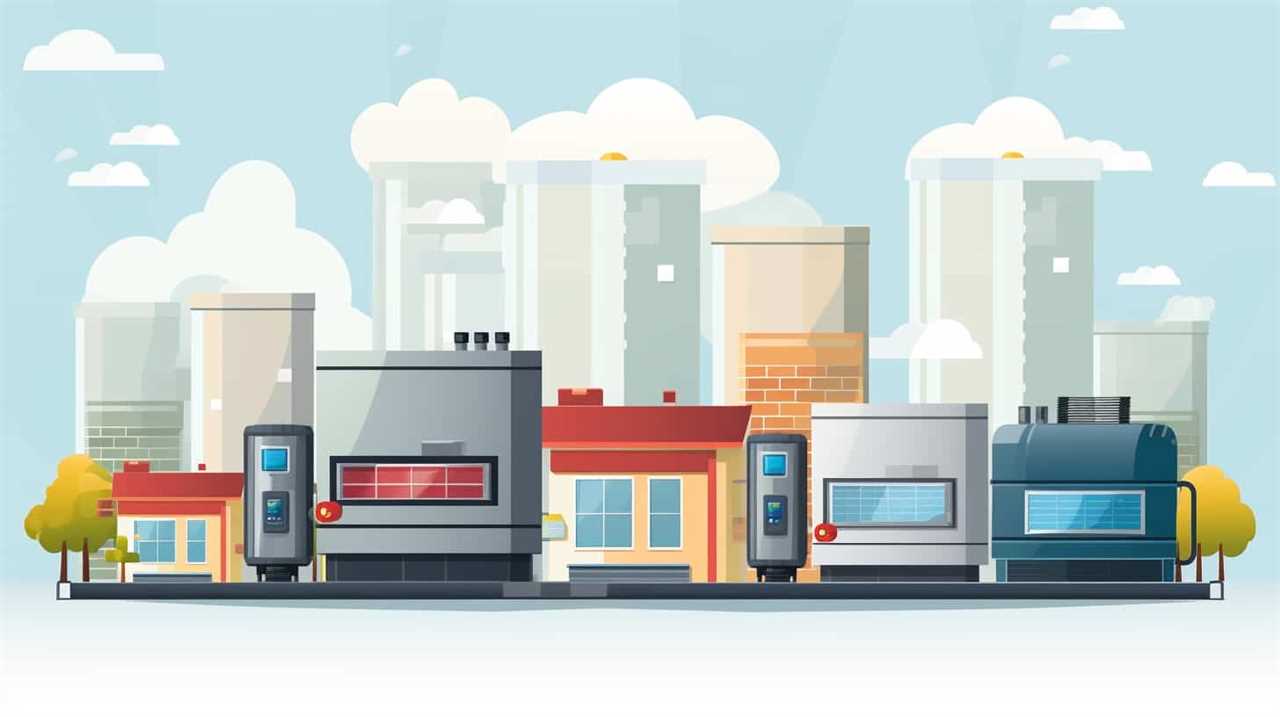
Over time, the air filters can become clogged, reducing airflow and causing strain on the heat pump. To clean the air filters, first, turn off the power to the system. Remove the filter from its housing and gently vacuum or wash it with mild detergent and water. Allow the filter to dry completely before reinstalling it.
Filter replacement is recommended every three months or as needed, depending on the conditions in your home. By properly maintaining the air filters, you can improve indoor air quality and prolong the life of your HVAC heat pump.
Now, let’s move on to the next step: checking and adjusting thermostat settings.
Checking and Adjusting Thermostat Settings
To ensure optimal performance, we need to regularly check and adjust the thermostat settings in our HVAC heat pump. Here are some important steps to follow when troubleshooting and optimizing the thermostat:
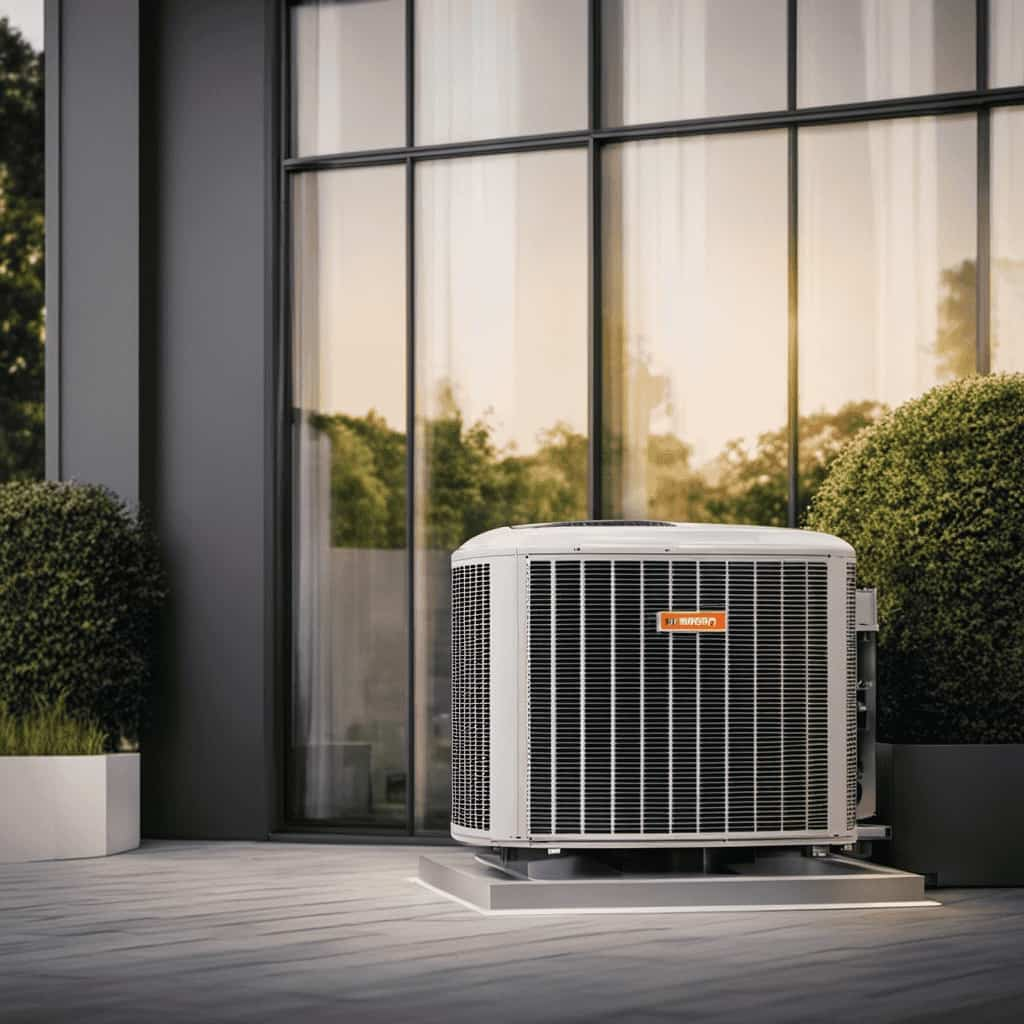
-
Check the thermostat’s location: Make sure it isn’t exposed to direct sunlight, drafts, or other sources of heat or cold that can affect its accuracy.
-
Verify the temperature settings: Ensure that the desired temperature is set correctly. If the heat pump isn’t reaching the desired temperature, it may be due to an incorrect setting.
-
Calibrate the thermostat: If you suspect that the thermostat isn’t accurately reading the temperature, you can recalibrate it using the manufacturer’s instructions.
-
Utilize programmable settings: Take advantage of the energy-saving features of your thermostat. Programming it to adjust the temperature when you’re away or asleep can lead to significant energy savings.
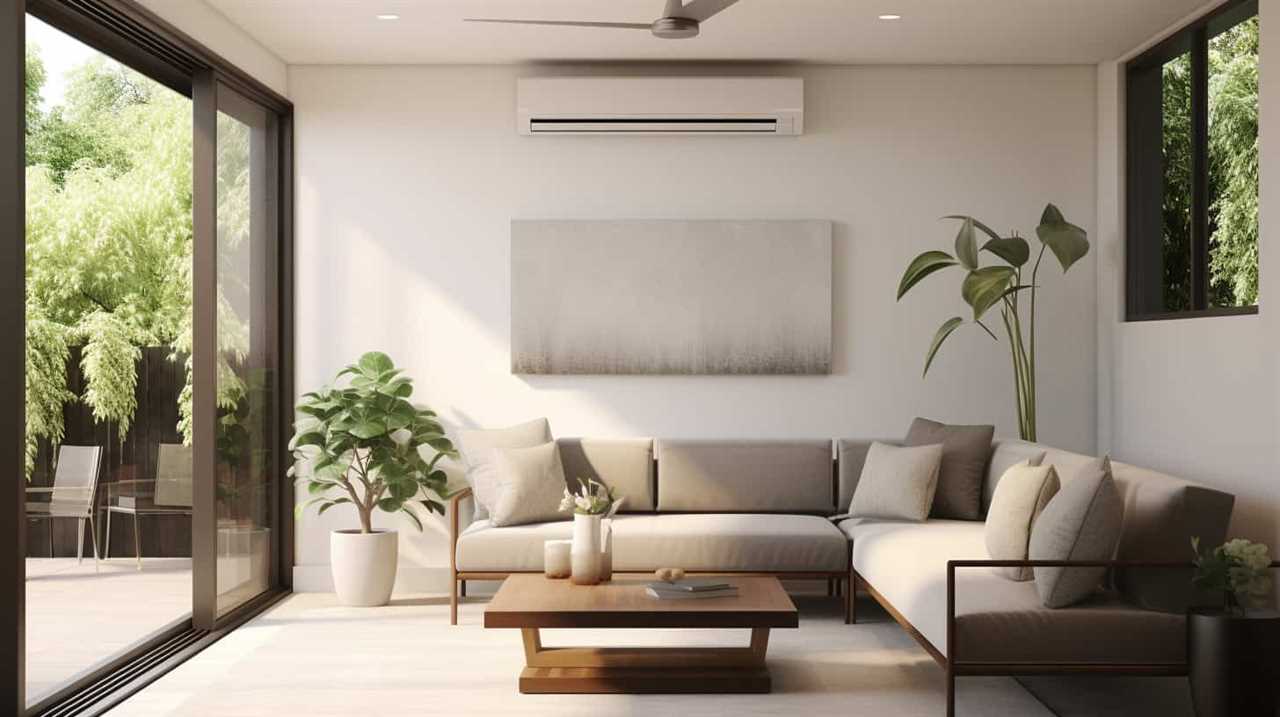
Inspecting and Cleaning the Outdoor Unit
When it comes to HVAC heat pump maintenance, inspecting and cleaning the outdoor unit is a crucial step.
Regular maintenance of the outdoor unit ensures optimal performance and efficiency.
While some homeowners may choose to clean the unit themselves, it’s important to consider hiring a professional for a thorough cleaning to avoid any potential damage or safety hazards.
Importance of Regular Maintenance
We need to regularly inspect and clean the outdoor unit for optimal HVAC heat pump maintenance. Neglecting this crucial step can lead to a variety of issues, including reduced efficiency and increased energy consumption.
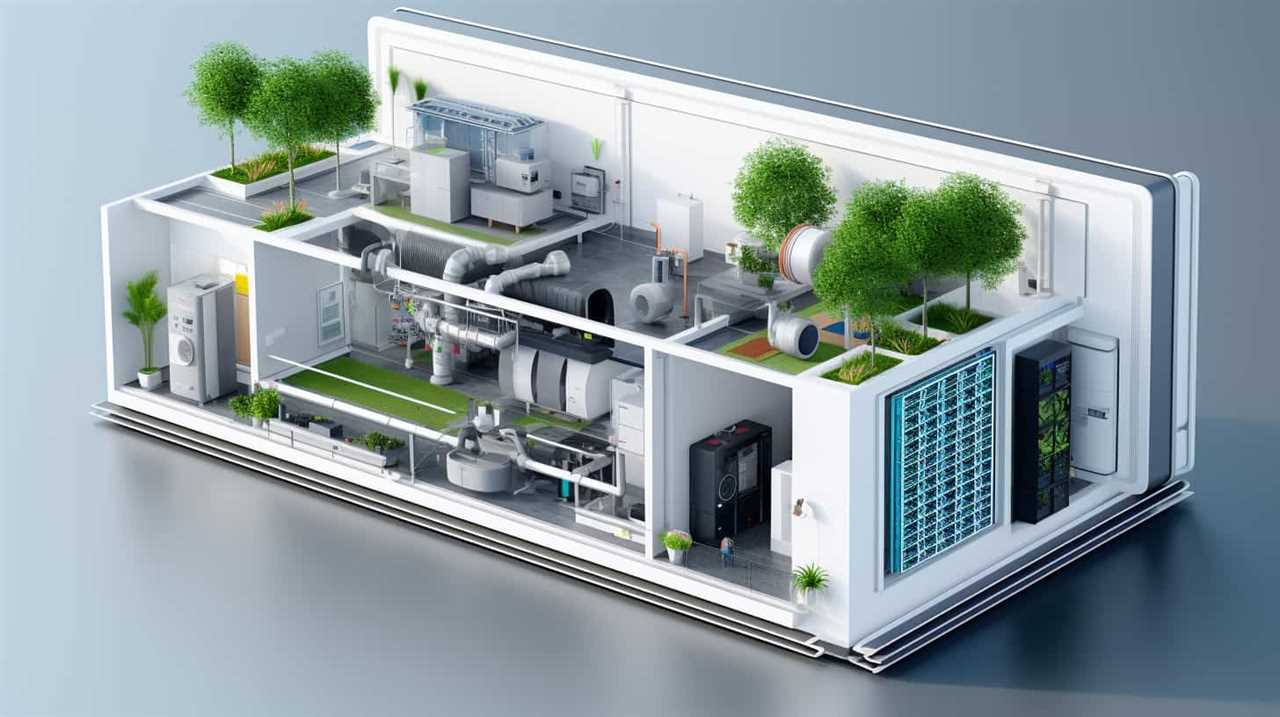
Here are four reasons why regular maintenance of the outdoor unit is essential:
-
Improved Performance: By keeping the outdoor unit clean and free from debris, the heat pump can function at its best, providing consistent heating and cooling throughout the year.
-
Reduced Energy Bills: Regular maintenance ensures that the heat pump operates efficiently, preventing energy wastage and lowering your utility bills.
-
Extended Lifespan: Proper maintenance helps prolong the lifespan of your heat pump, saving you money on costly repairs or replacements.

-
Enhanced Indoor Air Quality: Cleaning the outdoor unit prevents dirt and allergens from entering your home, promoting cleaner and healthier air.
DIY Vs Professional Cleaning
Are professional cleaning services more effective than DIY methods for inspecting and cleaning the outdoor unit of an HVAC heat pump?
When it comes to DIY vs professional maintenance, there are a few factors to consider, including cost and efficiency.
DIY cleaning involves inspecting and cleaning the outdoor unit yourself, which can save money upfront. However, it may not be as effective as professional cleaning in the long run.
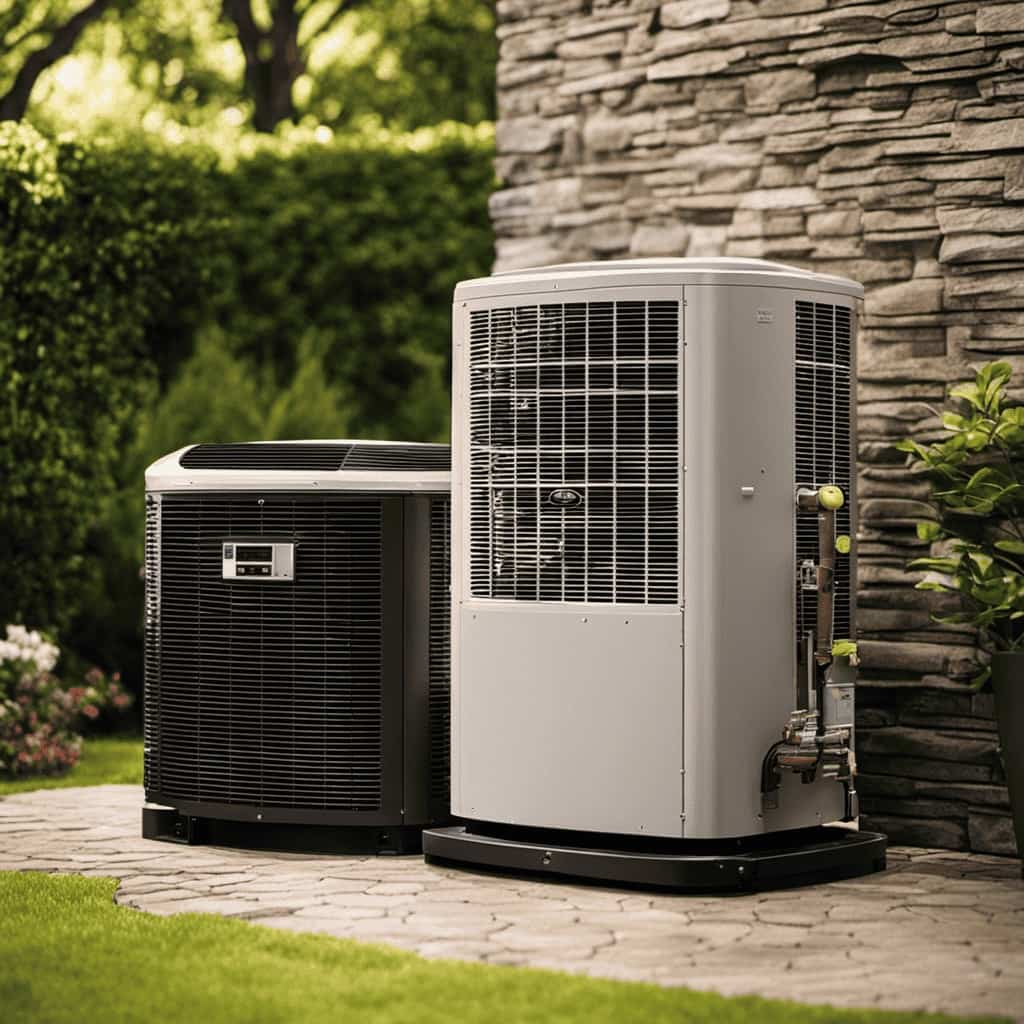
Professional cleaning services have the necessary expertise and equipment to thoroughly clean and maintain the outdoor unit. They can identify and address any underlying issues, ensuring optimal performance and energy efficiency.
While the cost of professional cleaning may be higher initially, it can prevent costly repairs and prolong the lifespan of your HVAC heat pump.
Ultimately, the decision between DIY and professional cleaning depends on your budget and maintenance goals.
Lubricating Moving Parts
When it comes to HVAC heat pump maintenance, one crucial aspect is lubricating the moving parts. Proper lubrication is essential for ensuring the smooth operation and longevity of the system.
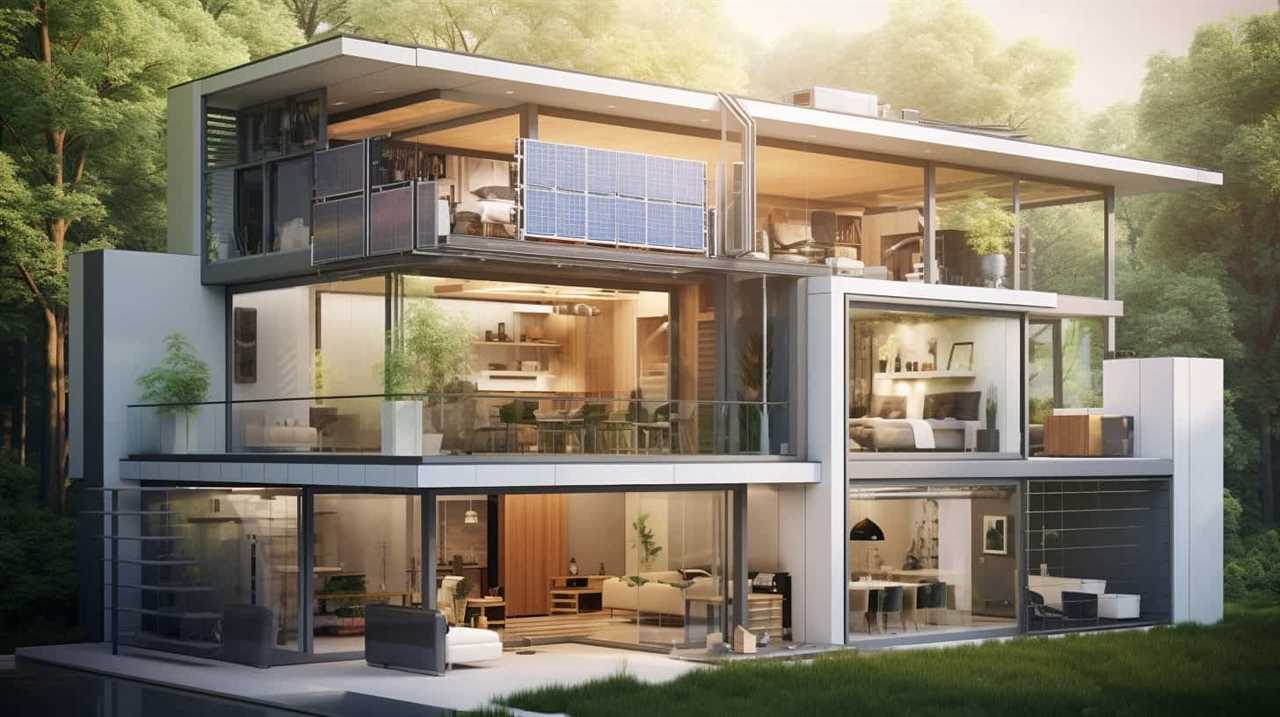
In this discussion, we’ll explore the importance of lubrication, the techniques for proper lubrication, and the common mistakes to avoid.
Importance of Lubrication
Proper lubrication is essential for maintaining the efficiency and longevity of HVAC heat pump systems by reducing friction between moving parts. Here are the key reasons why lubrication is so important:
-
Friction reduction: Lubrication creates a protective film that minimizes friction between the moving parts of the heat pump. This leads to smoother operation and less wear and tear.
-
Heat dissipation: Lubricants help dissipate heat generated during operation, preventing overheating and potential damage to the system.
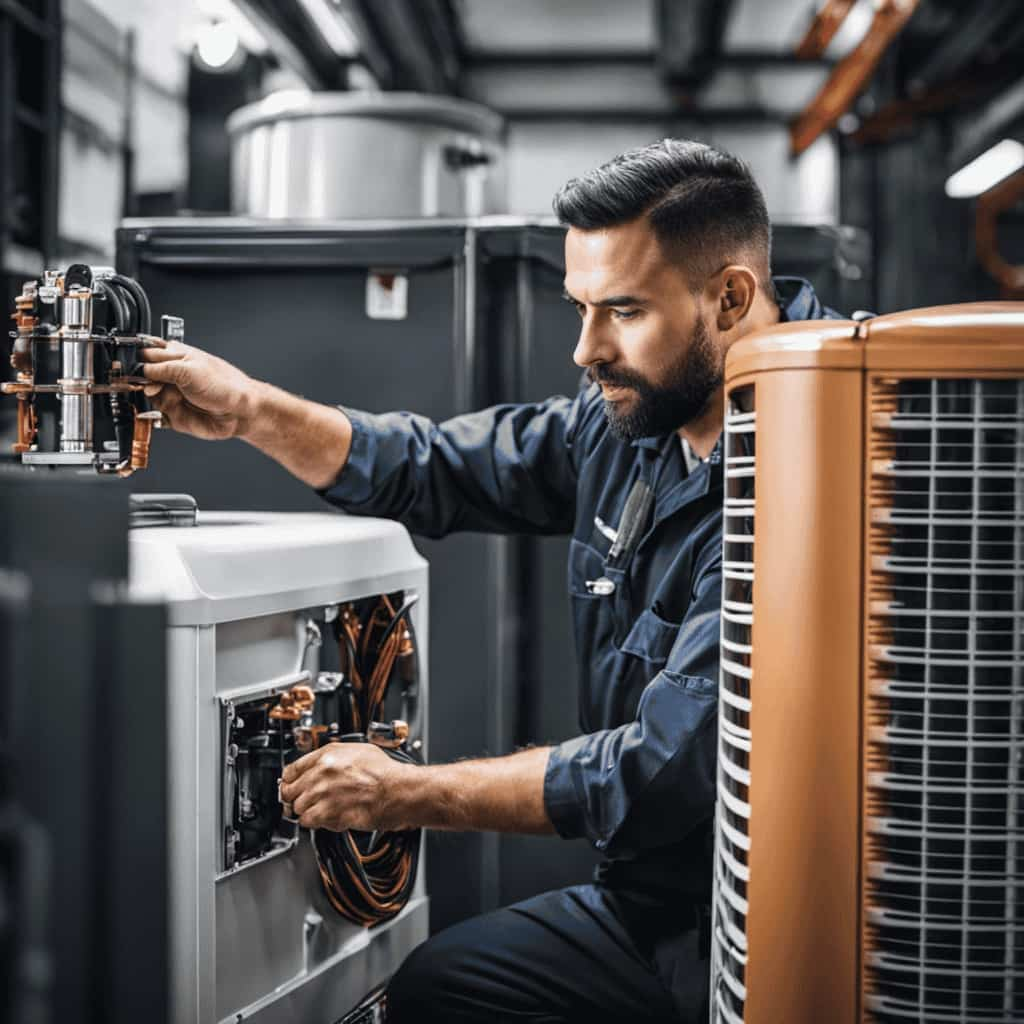
-
Corrosion prevention: Lubrication acts as a barrier against moisture and contaminants, preventing rust and corrosion, which can compromise the performance and lifespan of the heat pump.
-
Noise reduction: Proper lubrication reduces the noise produced by the moving parts, resulting in a quieter and more comfortable environment.
Understanding the importance of lubrication is the first step towards effective HVAC heat pump maintenance. Now, let’s dive into the subsequent section to explore the proper lubrication techniques that should be followed.
Proper Lubrication Techniques
To ensure optimal performance, we recommend regularly lubricating the moving parts of your HVAC heat pump system. Proper lubrication techniques are essential for maintaining the efficiency and longevity of your system. When lubricating the moving parts, it’s important to use the right type of lubricant and apply it in the correct amount.

Start by identifying the parts that require lubrication, such as bearings, motors, and fan blades. Apply a small amount of lubricant to each part, ensuring that it reaches all the necessary areas. Avoid over-lubricating, as this can cause excessive friction and damage the parts. Regularly inspect the lubricated parts for any signs of wear or excessive heat.
By following these proper lubrication techniques, you can ensure that your HVAC heat pump system operates smoothly and efficiently.
Transitioning into the subsequent section about ‘common lubrication mistakes’, it’s important to be aware of the potential errors that can occur during the lubrication process.
Common Lubrication Mistakes
One common lubrication mistake is using too much lubricant on moving parts, which can lead to excessive friction and potential damage. To avoid this issue, it’s important to follow proper lubrication techniques and be aware of potential troubleshooting lubrication issues.

Here are four common lubrication mistakes to avoid:
-
Over-lubrication: Applying excessive lubricant can cause the parts to attract dust and debris, leading to clogs and reduced performance.
-
Under-lubrication: Insufficient lubrication can result in increased friction, increased wear and tear, and reduced efficiency.
-
Using the wrong lubricant: Different moving parts require specific lubricants. Using the wrong lubricant can lead to poor performance and potential damage.

-
Neglecting regular maintenance: Lubrication should be part of a regular maintenance routine. Neglecting this can lead to increased friction, overheating, and premature failure of the moving parts.
Inspecting and Clearing Drainage System
When inspecting and clearing the drainage system, we should regularly check for any blockages or buildup that could impede the flow of water. Proper drainage system maintenance is crucial in ensuring the efficient operation of an HVAC heat pump.
One common issue that arises is a clogged drain line, which can lead to water leakage and potential damage to the pump. To troubleshoot drainage issues, we should start by visually inspecting the drain pipe for any signs of blockage or debris. If a blockage is present, it can usually be cleared by using a wet/dry vacuum or a drain snake to remove the obstruction.
Additionally, regular cleaning and maintenance of the condensate pan is essential to prevent buildup and maintain optimal drainage.
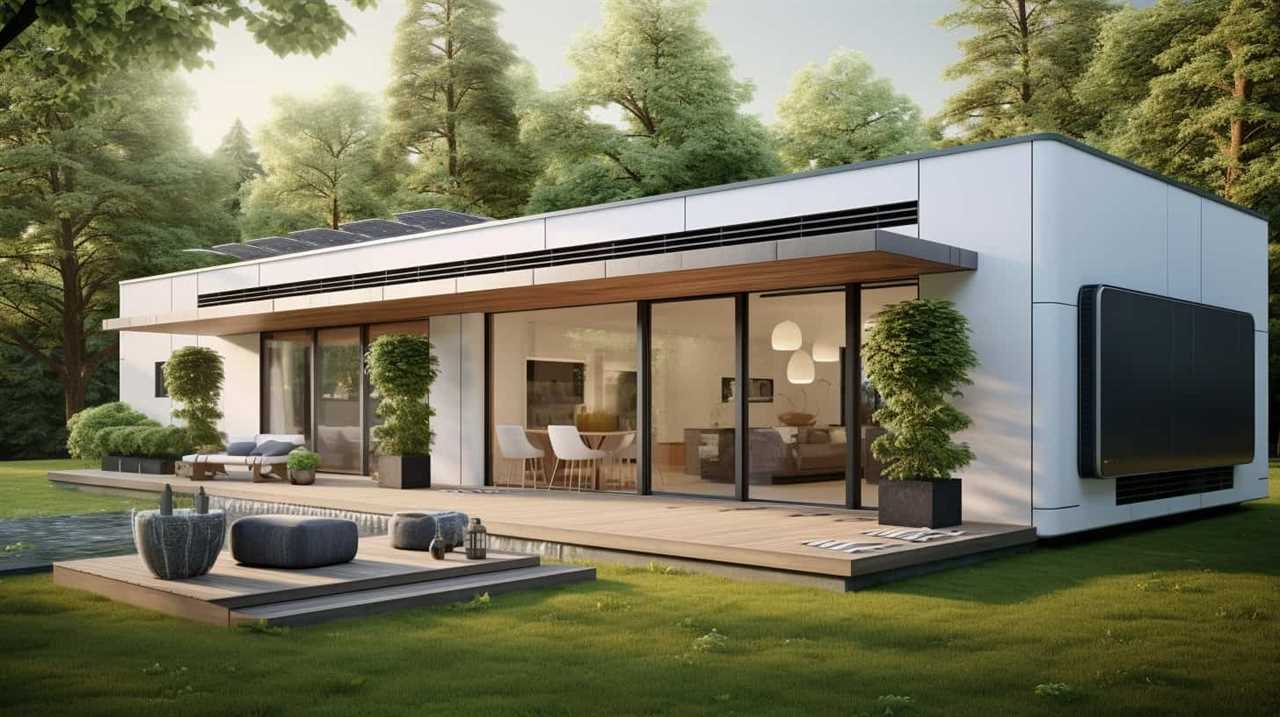
Testing and Calibrating Electrical Connections
We regularly test and calibrate the electrical connections to ensure optimal performance and prevent any potential malfunctions in the HVAC heat pump. Proper testing techniques are crucial for identifying any issues with the electrical connections.
Here are some troubleshooting tips to help you in this process:
-
Visual Inspection: Start by visually inspecting the connections for any signs of damage or loose connections. Look for frayed wires, corrosion, or burnt marks.
-
Voltage Testing: Use a multimeter to measure the voltage across the connections. This will help identify any voltage drops or irregularities that could affect the performance of the heat pump.

-
Resistance Testing: Check the resistance of the connections using an ohmmeter. High resistance values indicate poor conductivity and may require cleaning or replacing the connections.
-
Tightening Connections: Ensure all connections are securely tightened to prevent any loose or intermittent connections.
By following these testing techniques and troubleshooting tips, you can maintain the electrical connections and ensure the proper functioning of your HVAC heat pump.
However, it’s still important to schedule professional inspections and tune-ups to thoroughly assess and maintain your system’s overall performance and efficiency.
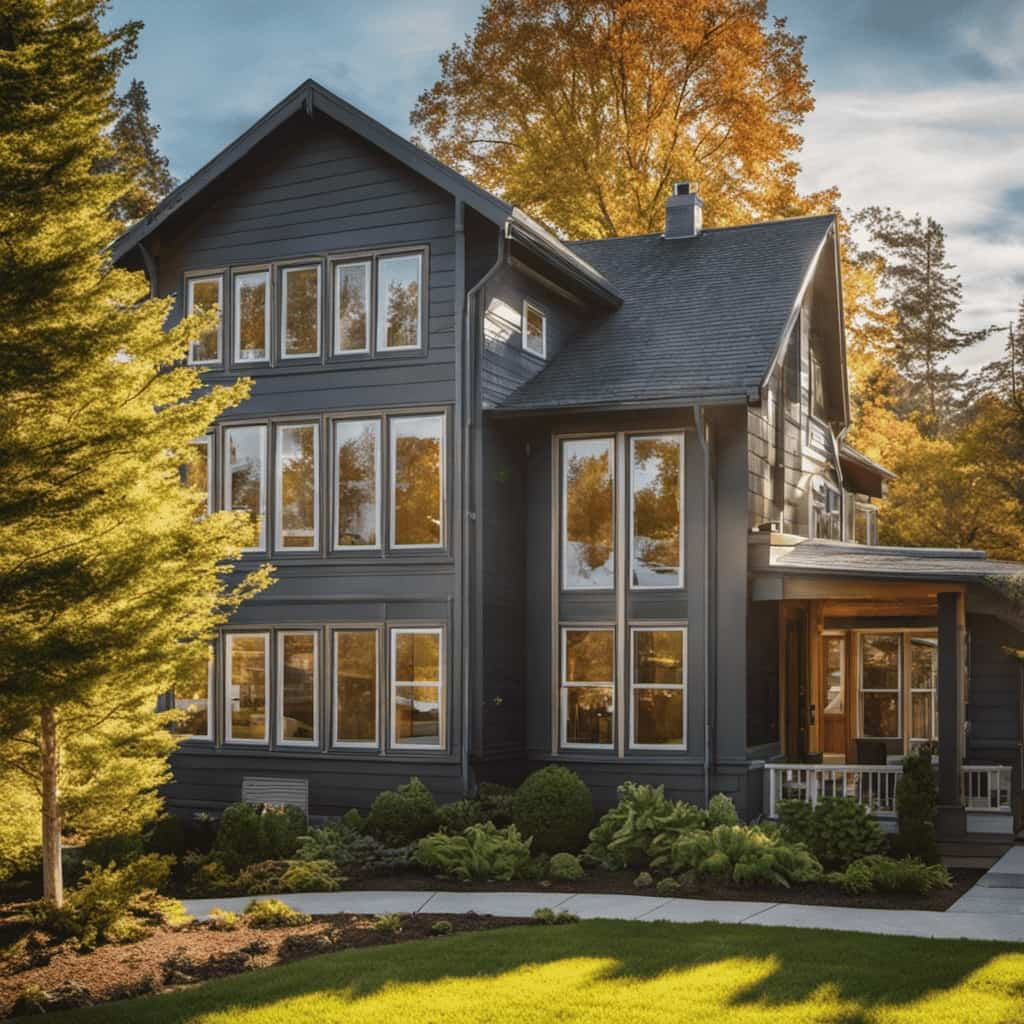
Scheduling Professional Inspections and Tune-ups
To ensure the optimal performance and longevity of our HVAC heat pump, it’s essential that we regularly schedule professional inspections and tune-ups. While DIY maintenance may seem like a cost-saving option, it’s important to recognize the benefits that professional inspections bring.
Professionals have the expertise and specialized tools to identify potential issues before they become major problems. They can thoroughly inspect the system, including the electrical connections, refrigerant levels, and overall functionality. Regular inspections can help prevent breakdowns, improve energy efficiency, and extend the lifespan of the heat pump.
Additionally, professionals can perform tune-ups, which involve cleaning and lubricating components, adjusting settings, and optimizing the system’s performance. By investing in professional inspections and tune-ups, we can ensure that our HVAC heat pump operates at its best, saving us money in the long run and providing us with reliable comfort.
Frequently Asked Questions
How Often Should I Schedule Professional Inspections and Tune-Ups for My HVAC Heat Pump?
We schedule professional inspections and tune-ups for our HVAC heat pump once a year. Regular maintenance helps troubleshoot common issues and improve energy efficiency. It’s important to stay on top of these tasks to ensure optimal performance.
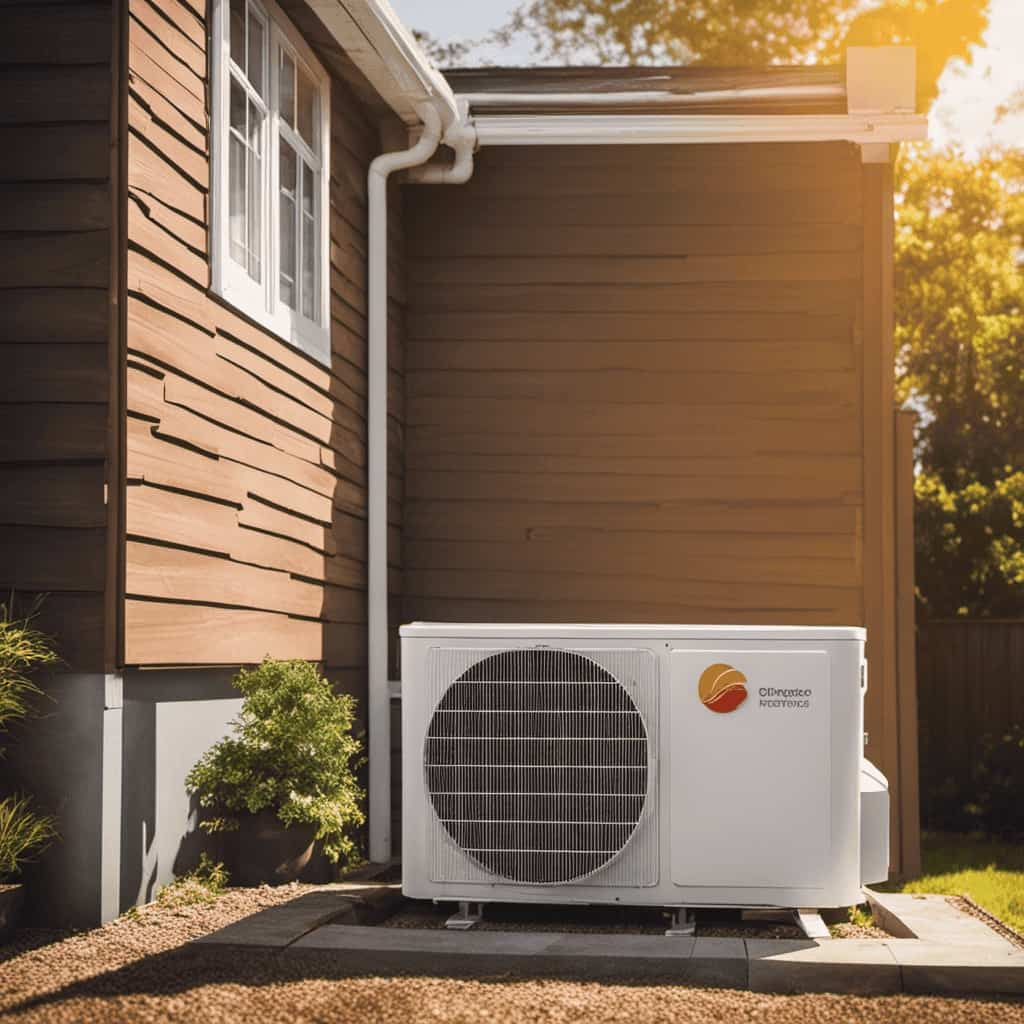
Can I Clean and Change Air Filters on My Own or Should I Hire a Professional for This Task?
When it comes to cleaning and changing air filters, we recommend hiring a professional. It may cost more, but they have the expertise to ensure proper maintenance and prevent potential damage to your HVAC system.
How Frequently Should I Lubricate the Moving Parts of My Heat Pump?
We check our maintenance checklist to determine the lubrication frequency for the moving parts of our heat pump. It is important to ensure proper lubrication to keep the pump running smoothly and efficiently.
What Are the Common Signs That Indicate the Need for a Professional Inspection or Tune-Up?
Regular maintenance is crucial for HVAC heat pump performance. Signs of issues include decreased airflow, strange noises, and inconsistent heating or cooling. Professional inspections and tune-ups ensure optimal operation and prevent costly repairs.
Is It Necessary to Test and Calibrate Electrical Connections Regularly, and How Can I Do It Myself?
Testing and calibrating electrical connections regularly is necessary for optimal heat pump performance. We can do it ourselves by following manufacturer guidelines. Regular maintenance, including professional inspections, ensures safety, extends the lifespan, and reduces costs in the long run.
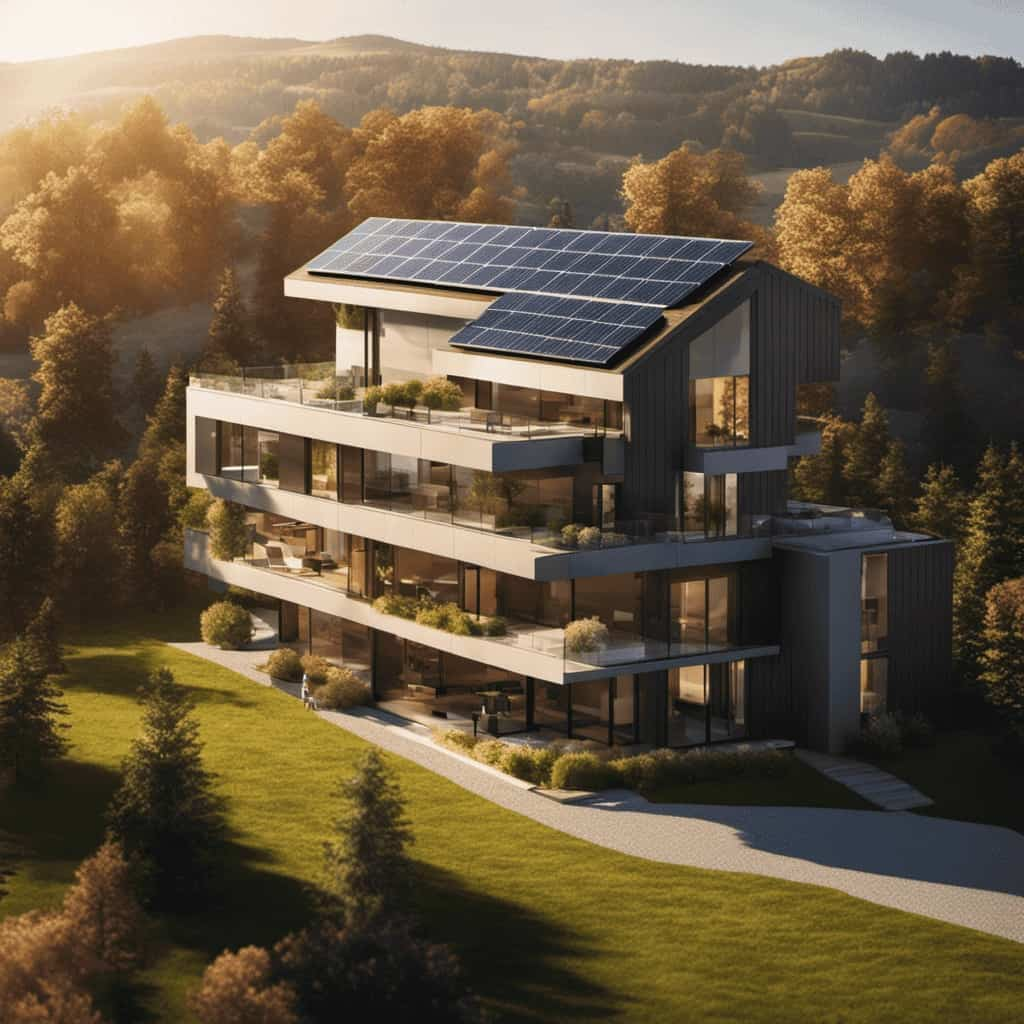
Conclusion
In conclusion, regular maintenance is crucial for achieving optimal performance and longevity of your HVAC heat pump system.
By understanding the components, cleaning air filters, checking thermostat settings, inspecting the outdoor unit, lubricating moving parts, clearing the drainage system, testing electrical connections, and scheduling professional inspections, you can ensure that your heat pump operates efficiently and effectively.
By following these steps, you can excel in HVAC heat pump maintenance and enjoy a comfortable and energy-efficient home.
Home Heating Solutions
Renounce Waste: Embrace Heat Pumps for Home Heating

We’ve all experienced the frustration of squandered energy and skyrocketing utility costs. But imagine if there existed a method to escape this vicious cycle?
Enter heat pumps, the efficient and cost-effective solution for home heating. With their ability to harness and transfer heat, heat pumps not only save you money but also reduce your carbon footprint.
In this article, we’ll explore the many benefits of heat pumps and guide you through the steps to embrace this sustainable heating option.
Key Takeaways
- Heat pumps save homeowners money on energy bills.
- Heat pumps are more environmentally friendly than traditional heating systems.
- Heat pumps have a longer lifespan, reducing waste and the need for replacements.
- Heat pumps provide both heating and cooling for homes, leading to cost savings.
The Efficiency of Heat Pumps
We believe that the efficiency of heat pumps is a crucial aspect to consider when choosing a home heating system. Heat pumps are known for their cost effectiveness and energy efficiency. Compared to traditional heating systems, heat pumps can save homeowners a significant amount of money on energy bills.

This is because heat pumps operate by transferring heat from one location to another, rather than generating heat themselves. As a result, they consume less energy and are more environmentally friendly.
Heat pumps also provide consistent heating throughout the home, ensuring that every room stays warm and comfortable. By choosing a heat pump, homeowners can enjoy the benefits of a cost-effective and energy-efficient heating system, while also reducing their carbon footprint.
Cost Savings With Heat Pumps
When properly installed and used, heat pumps can lead to significant cost savings for homeowners. One of the main reasons for this is their cost effectiveness.
Heat pumps are highly efficient in converting energy from the air or ground into heat, making them more energy efficient than traditional heating systems. This means that homeowners can save on their energy bills by using heat pumps to heat their homes.

Additionally, heat pumps can also provide savings through their ability to cool homes in the summer, eliminating the need for separate air conditioning systems. By using a heat pump for both heating and cooling, homeowners can save even more money on their energy bills.
In the next section, we’ll discuss the environmental benefits of heat pumps and how they can contribute to a greener future.
Environmental Benefits of Heat Pumps
Our homes can become more environmentally friendly by embracing heat pumps for heating, which offer numerous benefits for the environment.
Heat pumps are highly energy-efficient and can significantly reduce energy consumption compared to traditional heating systems. They work by transferring heat from the outside air or ground into the home, rather than generating heat through combustion. This results in lower carbon emissions and a reduced carbon footprint.
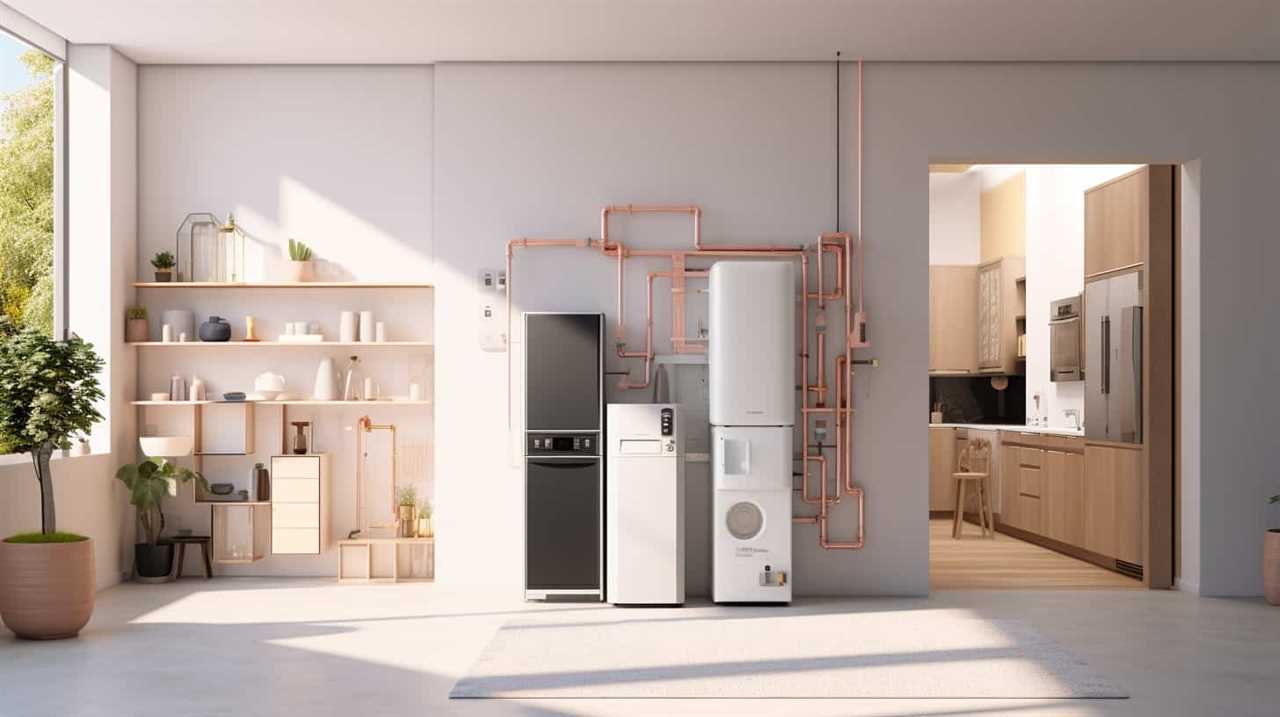
By using renewable energy sources such as air or ground heat, heat pumps help to minimize the reliance on fossil fuels and contribute to a cleaner and greener environment.
Additionally, heat pumps have a longer lifespan than conventional heating systems, reducing waste and the need for frequent replacements.
Embracing heat pumps is a sustainable choice that benefits both our homes and the planet.
How Heat Pumps Work
Let’s take a closer look at how heat pumps work and why they’re an efficient and environmentally-friendly choice for home heating.
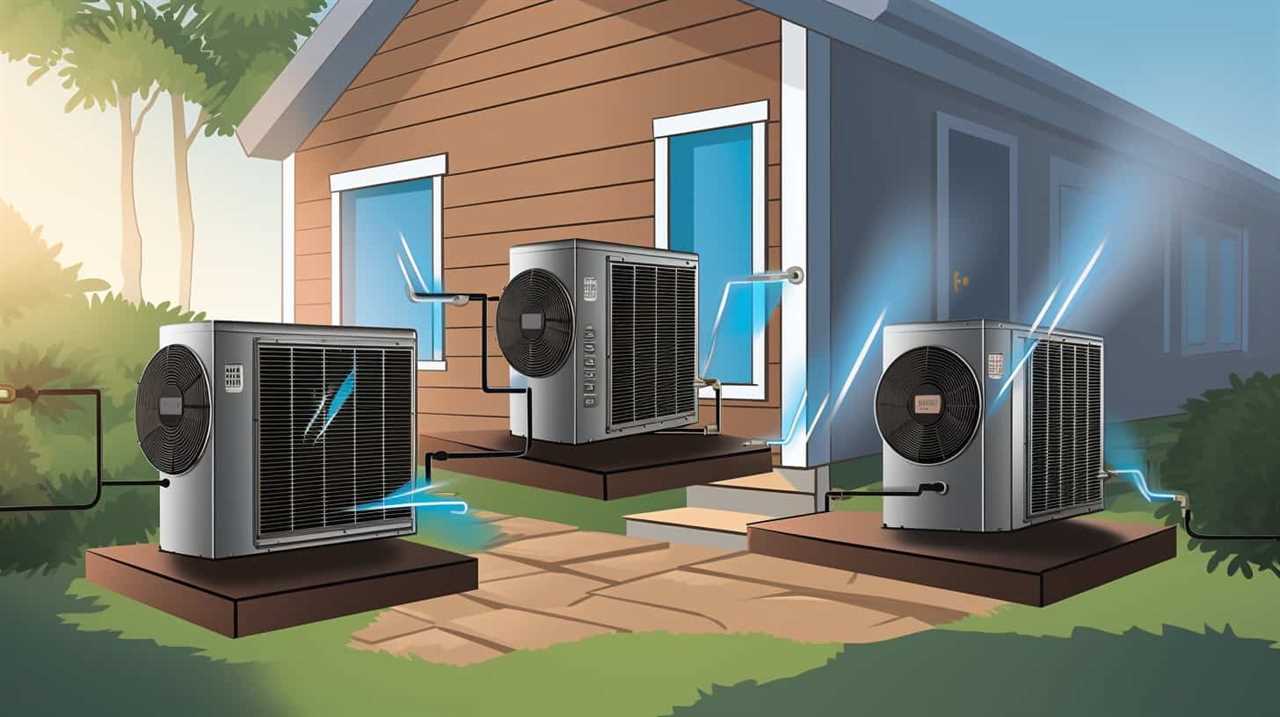
Heat pumps work by transferring heat from one place to another using a small amount of electricity. This process not only saves energy but also reduces greenhouse gas emissions, making it a sustainable option.
Additionally, heat pumps can provide significant cost savings in the long run, making them a smart investment for homeowners.
Efficiency of Heat Pumps
As we explore the efficiency of heat pumps and how they work, it becomes evident that their ability to transfer heat from one place to another is what sets them apart.
Heat pump technology utilizes the principle of extracting heat from a source, such as the air or ground, and transferring it to another location, such as a building. This process is achieved through the use of refrigerants and a compressor, which work together to absorb heat from a low-temperature source and release it to a higher-temperature destination.

The efficiency of heat pumps is measured by their coefficient of performance (COP), which denotes the ratio of heat output to energy input. Heat pumps offer significant energy efficiency advantages over traditional heating systems, with COPs ranging from 2 to 5, meaning they can provide 2 to 5 times more heat energy than the electrical energy they consume.
This makes heat pumps an environmentally friendly and cost-effective option for heating homes and reducing energy waste.
- Heat pump technology utilizes the principle of heat transfer
- Refrigerants and compressors are key components in the heat pump system
- Heat pumps offer significant energy efficiency advantages over traditional heating systems.
Environmental Benefits of Heat Pumps
While heat pumps provide efficient heating for homes, they also offer significant environmental benefits due to their operation and use of renewable energy sources. Heat pumps work by transferring heat from one location to another, rather than generating heat directly. This process requires less energy consumption compared to traditional heating systems, resulting in lower greenhouse gas emissions.
Heat pumps use electricity to extract heat from the air, ground, or water, and then distribute it to heat or cool a home. By utilizing renewable energy sources like air, geothermal, or water, heat pumps help reduce reliance on fossil fuels and decrease carbon emissions. This makes heat pumps a sustainable and eco-friendly option for heating homes, contributing to the overall reduction of greenhouse gases and promoting a cleaner environment.

Cost Savings With Heat Pumps
By using a heat pump, we can achieve cost savings and reduce energy consumption in our homes. Heat pumps work by transferring heat from one location to another, rather than generating heat directly. This makes them highly efficient and cost-effective compared to other heating systems.
Here are three key ways that heat pumps can help save on costs and energy:
-
Energy Savings: Heat pumps can reduce energy consumption by up to 50% compared to traditional heating systems. They extract heat from the air, ground, or water, and use it to warm your home efficiently.
-
Lower Operating Costs: Heat pumps require less electricity to operate, resulting in lower monthly utility bills. Additionally, they’ve fewer moving parts than combustion-based systems, reducing the need for maintenance and repairs.

-
Rebates and Incentives: Many governments and utility companies offer incentives and rebates for installing heat pumps, which can further offset the initial cost and make them even more cost-effective.
Types of Heat Pumps for Home Heating
We can explore various types of heat pumps for home heating. Heat pumps come in three main types: air source, ground source, and water source.
Air source heat pumps extract heat from the outdoor air and transfer it indoors, while ground source heat pumps extract heat from the ground. Water source heat pumps, on the other hand, extract heat from a water source such as a lake or pond.
Each type of heat pump has its own benefits, such as energy efficiency, cost savings, and environmental friendliness. Heat pumps can also provide both heating and cooling for your home, making them versatile and practical.

Now that we understand the different types of heat pumps, let’s move on to the next section about the installation and maintenance of heat pumps.
Installation and Maintenance of Heat Pumps
First, let’s delve into the installation and maintenance of heat pumps. When it comes to installing a heat pump, there are a few techniques that can ensure optimal performance. Firstly, it’s important to choose the right location for the pump, preferably in a well-ventilated area away from obstructions. Secondly, proper insulation of the refrigerant lines is essential to prevent heat loss. Lastly, hiring a professional installer who’s well-versed in heat pump installation techniques can guarantee a smooth and efficient process.
To keep your heat pump running smoothly, regular maintenance is key. Here are some troubleshooting tips to help you out:
- Check the air filters regularly and clean or replace them as needed to ensure proper airflow.
- Keep the outdoor unit clean and free from debris to prevent any obstructions.
- Schedule annual maintenance inspections with a qualified technician to identify and address any potential issues before they become major problems.
Overcoming Common Misconceptions About Heat Pumps
Let’s address some common misconceptions about heat pumps to separate fact from fiction.
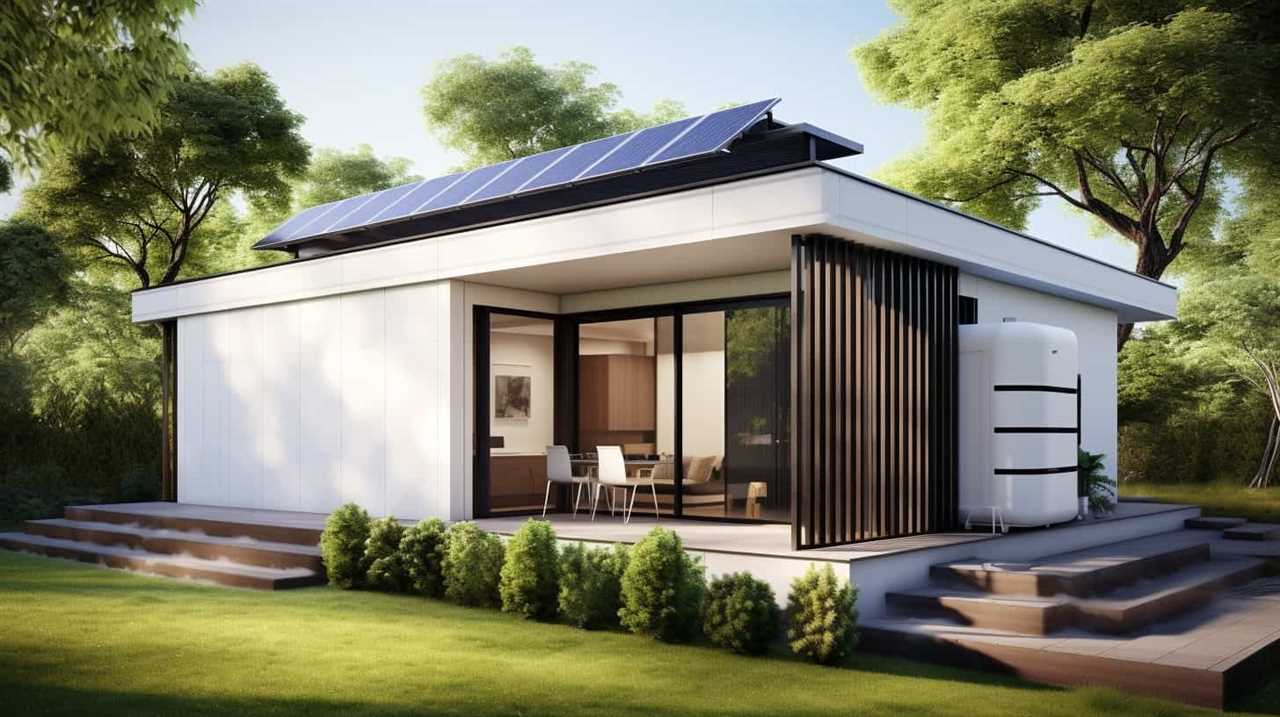
Firstly, there’s a misconception that heat pumps aren’t efficient. However, heat pumps are actually highly efficient, as they transfer heat rather than generating it, resulting in lower energy consumption and reduced utility bills.
Secondly, some may question the reliability of heat pumps. In reality, modern heat pumps are built to last and have a lifespan of around 15-20 years, making them a reliable and long-term heating solution for homes.
Efficiency of Heat Pumps
The efficiency of heat pumps can often be misunderstood due to common misconceptions. However, it’s important to have accurate information when making decisions about home heating. Here are some key points to consider:
-
Efficiency comparison: Heat pumps are known for their high efficiency compared to traditional heating systems. They can provide up to three times more heat energy than the electrical energy they consume, making them a cost-effective and environmentally friendly option.

-
Government incentives: Many governments offer incentives and rebates to encourage the use of heat pumps. These incentives can help offset the initial installation costs and make heat pumps more affordable for homeowners. It’s worth looking into the incentives available in your area to take advantage of potential savings.
-
Long-term savings: Although heat pumps may have a higher upfront cost, they can lead to significant long-term savings on energy bills. Their efficiency allows for reduced energy consumption, resulting in lower monthly bills and a quicker return on investment.
Reliability of Heat Pumps
Overcoming common misconceptions about heat pumps involves understanding their reliability.
Many people have reliability concerns when it comes to heat pumps, but it’s important to note that modern heat pump systems are highly reliable. With proper maintenance, heat pumps can provide consistent and efficient heating for your home.

Regular maintenance requirements include cleaning or replacing air filters, checking refrigerant levels, and inspecting the outdoor unit for any debris or obstructions. By following these maintenance requirements, you can ensure that your heat pump operates smoothly and efficiently throughout the year.
It’s also worth mentioning that heat pumps come with warranties that cover any potential issues, offering peace of mind to homeowners.
With their reliability established, let’s now explore the steps to transition to heat pump heating.
Steps to Transition to Heat Pump Heating
We can start by conducting an assessment of our current heating system to determine the necessary steps for transitioning to heat pump heating. This assessment will help us identify any potential challenges we may encounter during the transition process. It’s essential to consider factors such as the age and condition of our current system, as well as the compatibility of our home’s infrastructure with heat pumps.
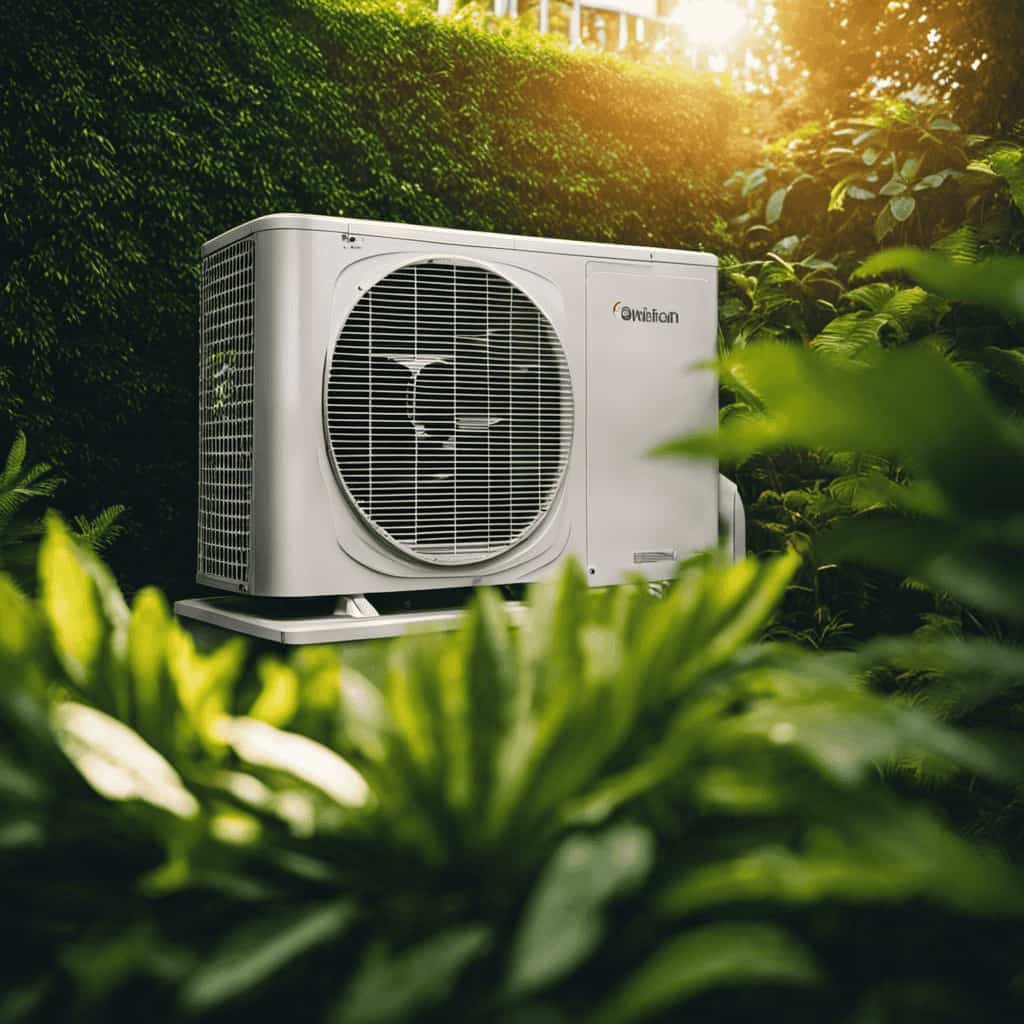
Once we’ve assessed our situation, we can take the following steps to transition smoothly to heat pump heating:
- Research and choose the right heat pump system for our home’s heating needs. Consider factors such as efficiency, size, and cost.
- Hire a qualified HVAC professional to install the heat pump system. They can ensure proper installation and address any technical challenges that may arise.
- Take advantage of government incentives and rebates that may be available to offset the cost of purchasing and installing a heat pump system.
Frequently Asked Questions
Are Heat Pumps Suitable for All Types of Homes?
Heat pumps can be suitable for all types of homes, including older ones. They provide cost-effective heating in different climates. Embracing heat pumps helps us renounce waste and serve others by reducing energy consumption.
Can Heat Pumps Be Used for Both Heating and Cooling?
Yes, heat pumps can be used for both heating and cooling. They are suitable for commercial buildings and have many advantages, especially in cold climates. They provide efficient and cost-effective heating and cooling solutions.
Are There Any Government Incentives or Rebates Available for Installing Heat Pumps?
Yes, there are government incentives and energy rebates available for installing heat pumps. These incentives can help offset the cost and make it more affordable for homeowners to embrace this efficient and sustainable heating solution.
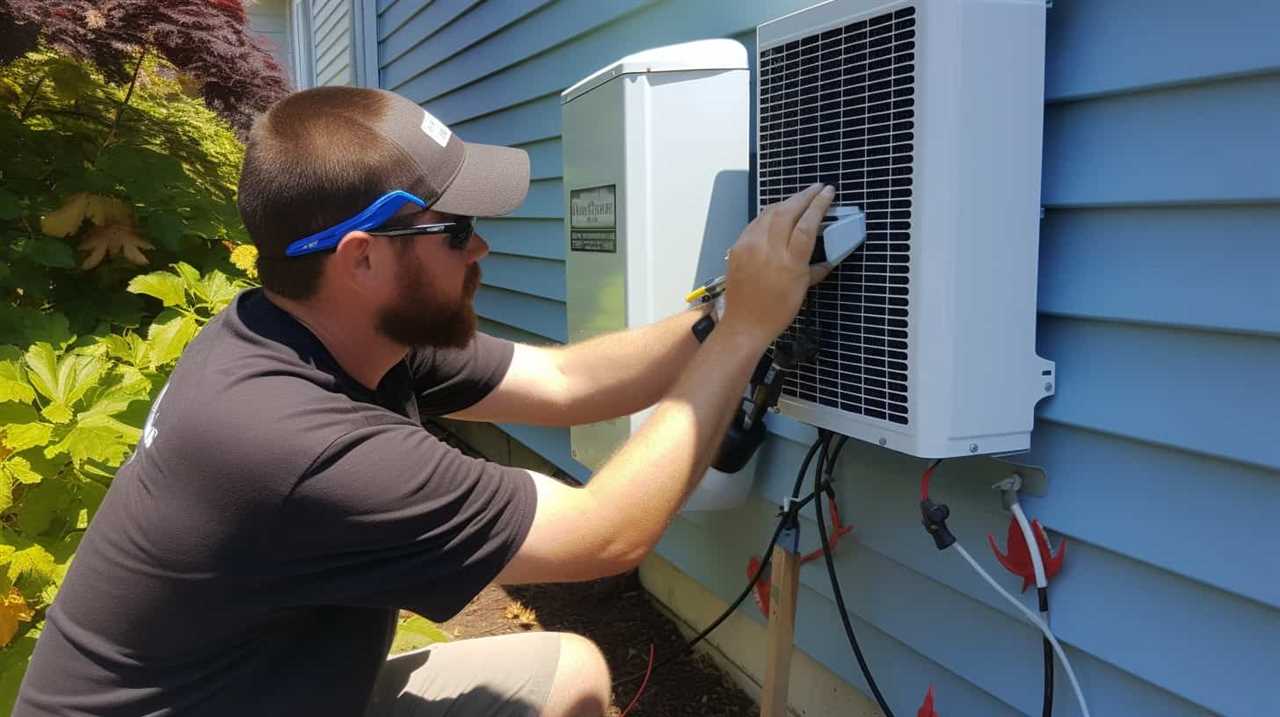
Can Heat Pumps Be Installed in Older Homes or Only in New Constructions?
Heat pump installation in existing homes is possible with retrofit options. Older homes can benefit from the energy efficiency and cost savings of heat pumps. Upgrade your heating system and embrace a greener future.
What Is the Lifespan of a Heat Pump and How Often Does It Require Maintenance?
Heat pumps have a lifespan of about 15-20 years and require regular maintenance, like cleaning filters and checking refrigerant levels, to ensure optimal performance. It’s important to schedule annual maintenance to prolong the life and efficiency of your heat pump.
Conclusion
In conclusion, embracing heat pumps for home heating not only saves us money but also helps us reduce our carbon footprint.
Did you know that according to the U.S. Department of Energy, heat pumps can reduce electricity use by up to 50% compared to conventional heating systems?
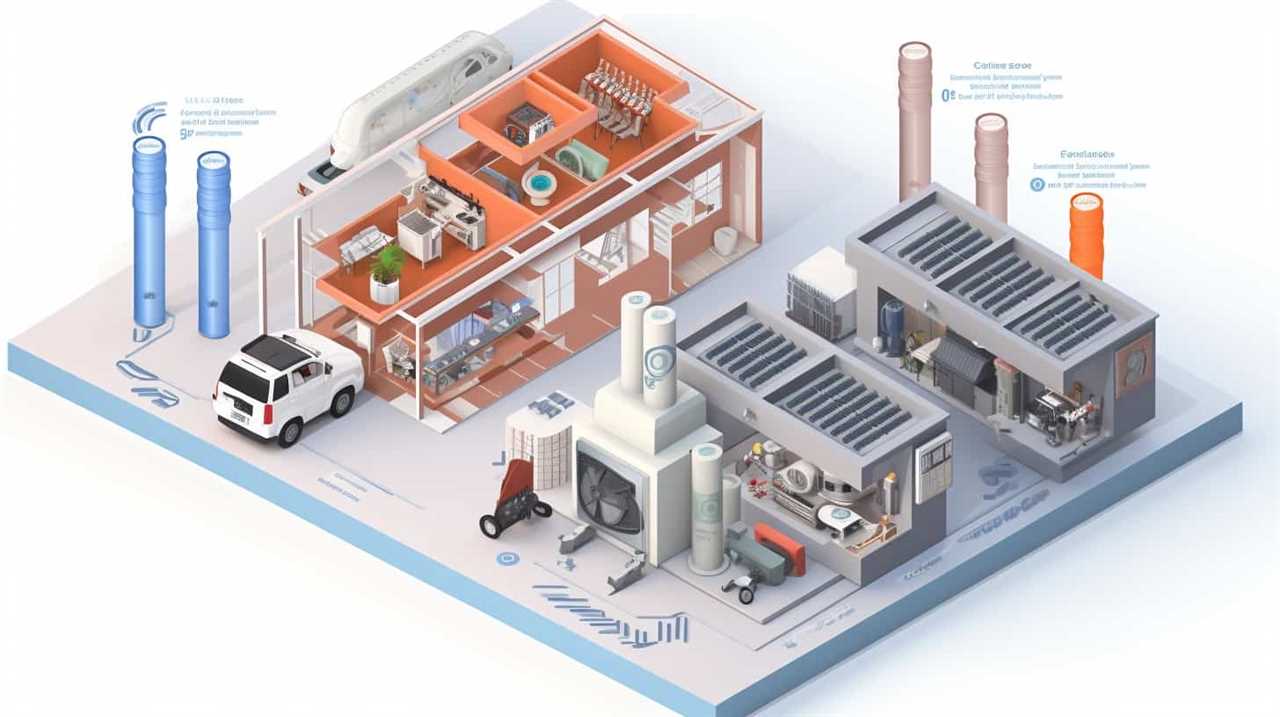
By making the switch to heat pumps, we can contribute to a more sustainable future while enjoying the benefits of efficient and cost-effective heating.
Home Heating Solutions
Top Heat Pumps for Ultimate Home Heating Solutions
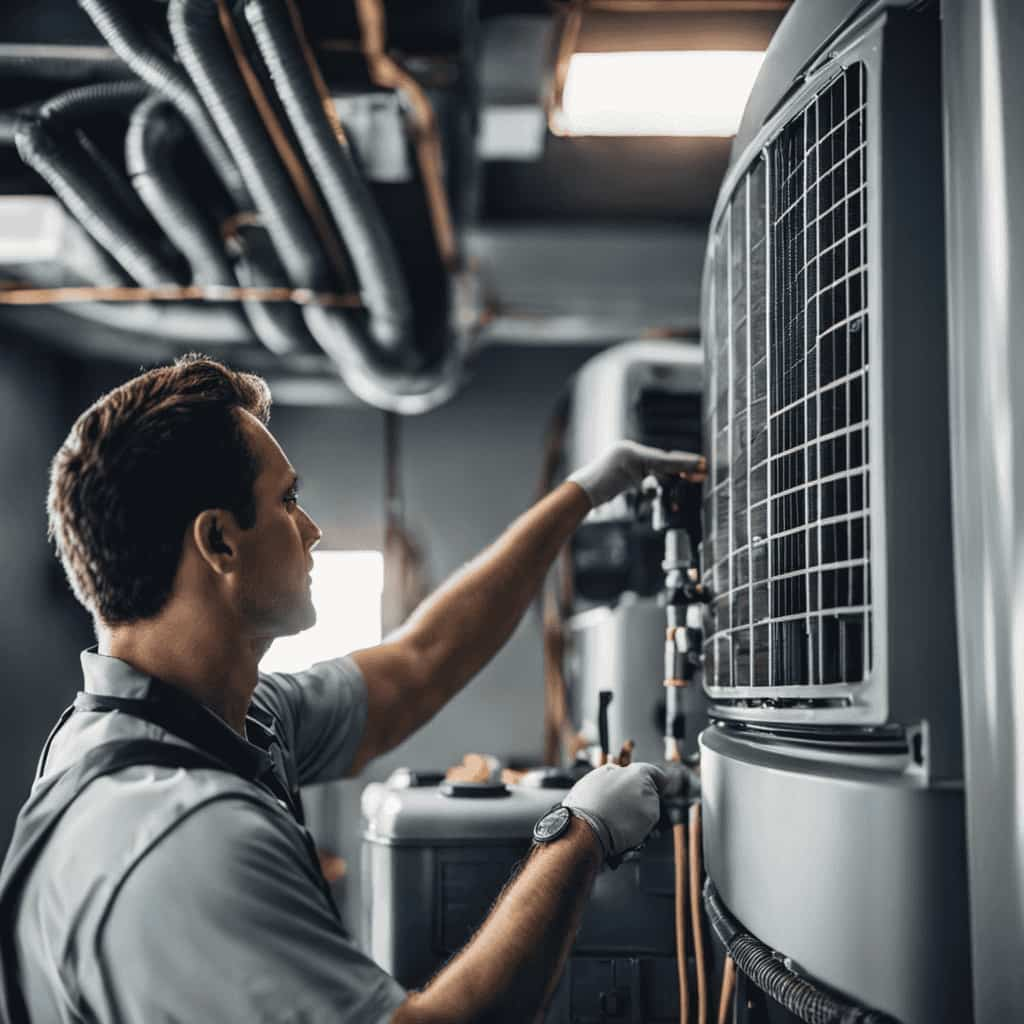
Searching for the best solutions to heat your home? Your search ends here.
We’ve got the top heat pumps that combine energy efficiency, high performance, smart thermostat compatibility, quiet operation, and reliability.
Say goodbye to sky-high utility bills and hello to quick, consistent heating.
With these innovative heat pumps, you can enjoy a peaceful home environment while saving both energy and money.

Experience the future of home heating with our top picks.
Key Takeaways
- Energy efficiency and cost savings: Heat pumps are designed with advanced technology and innovative features to maximize energy efficiency and reduce energy consumption, resulting in significant savings on utility bills. They are an eco-friendly and cost-effective heating solution, ideal for homeowners seeking comfort and sustainability.
- Performance and reliability: Heat pumps are known for their reliability and long-lasting performance. They provide consistent and reliable heating throughout the home, and the advanced technology used ensures efficient and effective heating. They are designed to reduce the carbon footprint and offer a comfortable and consistent indoor temperature.
- Convenience and control: Heat pumps seamlessly integrate with smart home systems, allowing users to control heating settings remotely through smartphones or connected devices. They can adjust heating levels based on occupancy and weather conditions, enhancing convenience, efficiency, and reducing energy wastage. Heat pumps are also compatible with smart thermostats.
- Quiet operation and installation: Heat pumps offer superior sound insulation for a calm and quiet atmosphere. With noise levels as low as 50 decibels, they provide whisper-quiet operation. The installation process is easy and efficient, allowing homeowners to create a tranquil home environment with warmth and serenity.
Energy-Efficient Heat Pumps for Lower Utility Bills
Our goal is to find energy-efficient heat pumps that can lower our utility bills. When it comes to choosing the right heat pump for our homes, cost effectiveness and environmental friendliness are crucial factors. We want heat pumps that not only provide efficient heating but also minimize our energy consumption and reduce our carbon footprint.
By opting for eco-friendly heat pumps, we ensure that we’re making a positive impact on the environment while also saving money in the long run. These heat pumps are designed with advanced technology and innovative features that maximize their energy efficiency, resulting in significant savings on our utility bills.
With their high performance and environmentally conscious design, these cost-effective heat pumps are the ideal solution for homeowners who strive for both comfort and sustainability.

Now, let’s delve into the next section about high-performance heat pumps for quick and consistent heating.
High-Performance Heat Pumps for Quick and Consistent Heating
We want heat pumps that offer high performance and provide quick and consistent heating. When it comes to fast heating options and eco-friendly heating solutions, these high-performance heat pumps are the top contenders:
-
Inverter-driven Technology: These heat pumps use advanced inverter technology to provide precise temperature control and quick heating. With variable speed compressors, they can adjust their output to match the heating demand, resulting in faster and more efficient heating.
-
Multi-stage Heating: Heat pumps with multi-stage heating capabilities can deliver consistent warmth by operating at different levels of heating output. This allows them to quickly reach the desired temperature and maintain it without fluctuations.

-
High COP (Coefficient of Performance): Heat pumps with a high COP rating are exceptionally efficient at converting electricity into heat. This not only ensures quick heating but also reduces energy consumption, making them eco-friendly and cost-effective.
-
Advanced Heat Exchangers: Heat pumps equipped with advanced heat exchangers maximize heat transfer, enabling faster and more efficient heating. These heat exchangers are designed to extract heat from the air or ground and transfer it into your home effectively.
With these high-performance heat pumps, you can enjoy fast heating options and eco-friendly heating solutions for your home.
Now let’s explore the next section about smart thermostat compatible heat pumps for convenient control.
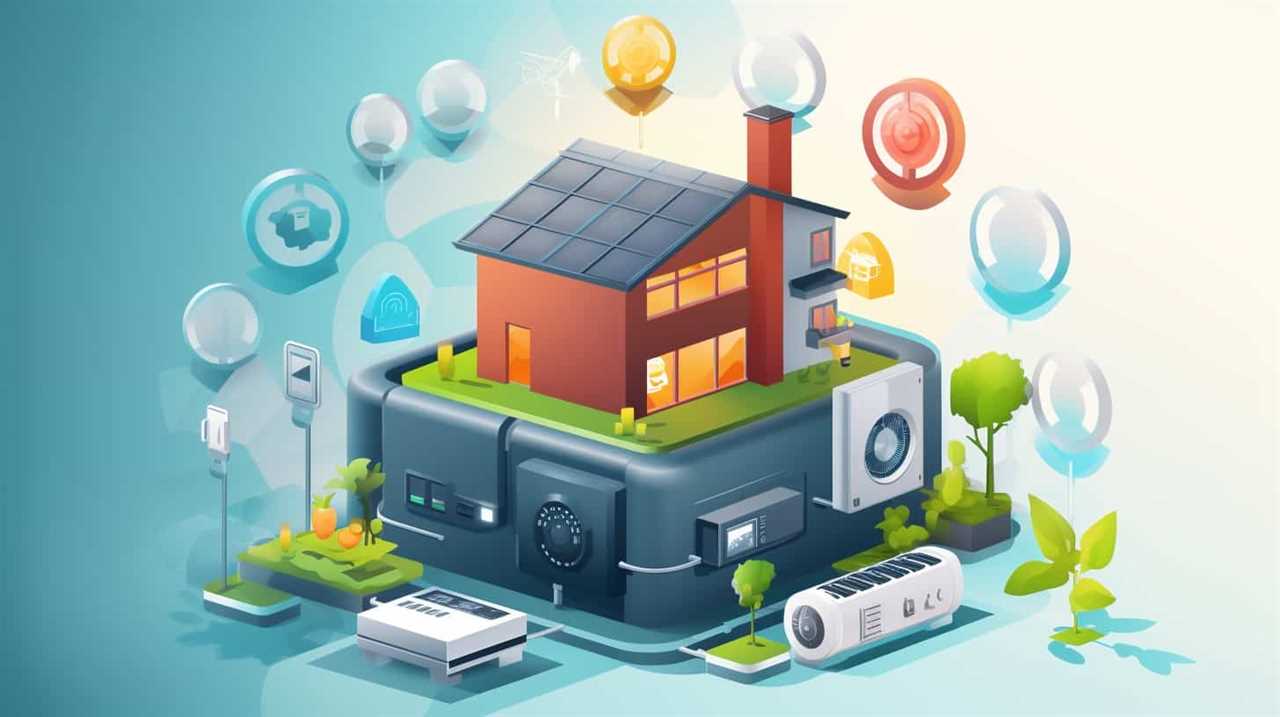
Smart Thermostat Compatible Heat Pumps for Convenient Control
Let’s explore the smart thermostat compatible heat pumps that offer convenient control for optimal home heating. These advanced heat pumps are designed to seamlessly integrate with smart home systems, allowing homeowners to control their heating settings remotely through their smartphones or other connected devices. With smart home integration, users can easily adjust temperature, set schedules, and monitor energy consumption from anywhere, enhancing convenience and efficiency.
In addition to the convenience of remote control, these smart thermostat compatible heat pumps also come with energy-saving features. They utilize intelligent algorithms to optimize heating cycles, ensuring that energy is utilized efficiently and effectively. By intelligently adjusting heating levels based on occupancy and weather conditions, these heat pumps help reduce energy wastage and lower utility bills.
As we move on to the next section, let’s explore quiet operation heat pumps that provide a peaceful home environment.
Quiet Operation Heat Pumps for Peaceful Home Environment
For a peaceful home environment, we recommend quiet operation heat pumps that provide efficient and noise-free heating solutions. These innovative heat pumps not only deliver warmth but also ensure a serene atmosphere for you and your family.
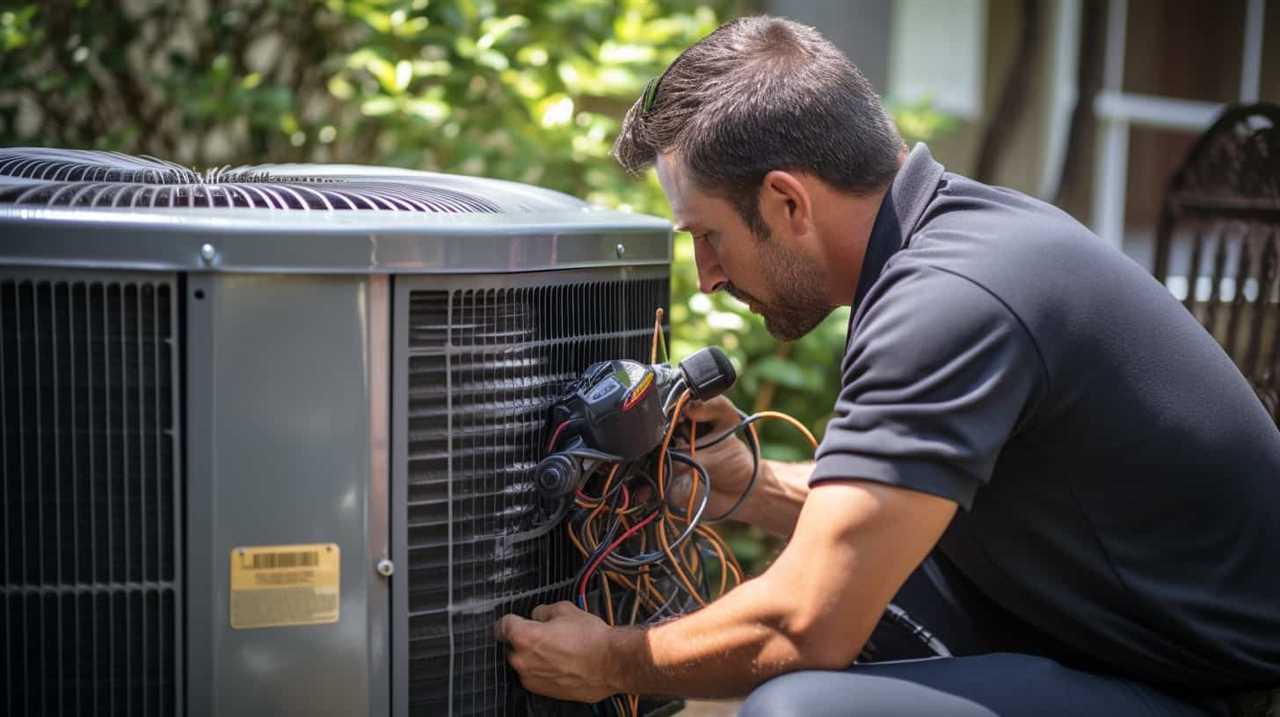
Here are four reasons why quiet operation heat pumps are the ideal choice for a peaceful home:
-
Superior Sound Insulation: Our heat pumps are designed with advanced sound insulation technology, minimizing noise levels to create a calm and quiet environment.
-
Whisper-quiet Operation: With noise levels as low as 50 decibels, our heat pumps operate almost silently, allowing you to enjoy a peaceful home without any distractions.
-
Efficient Installation Process: Our heat pumps are engineered for easy and efficient installation, minimizing disruption to your daily routine while providing a hassle-free heating solution.
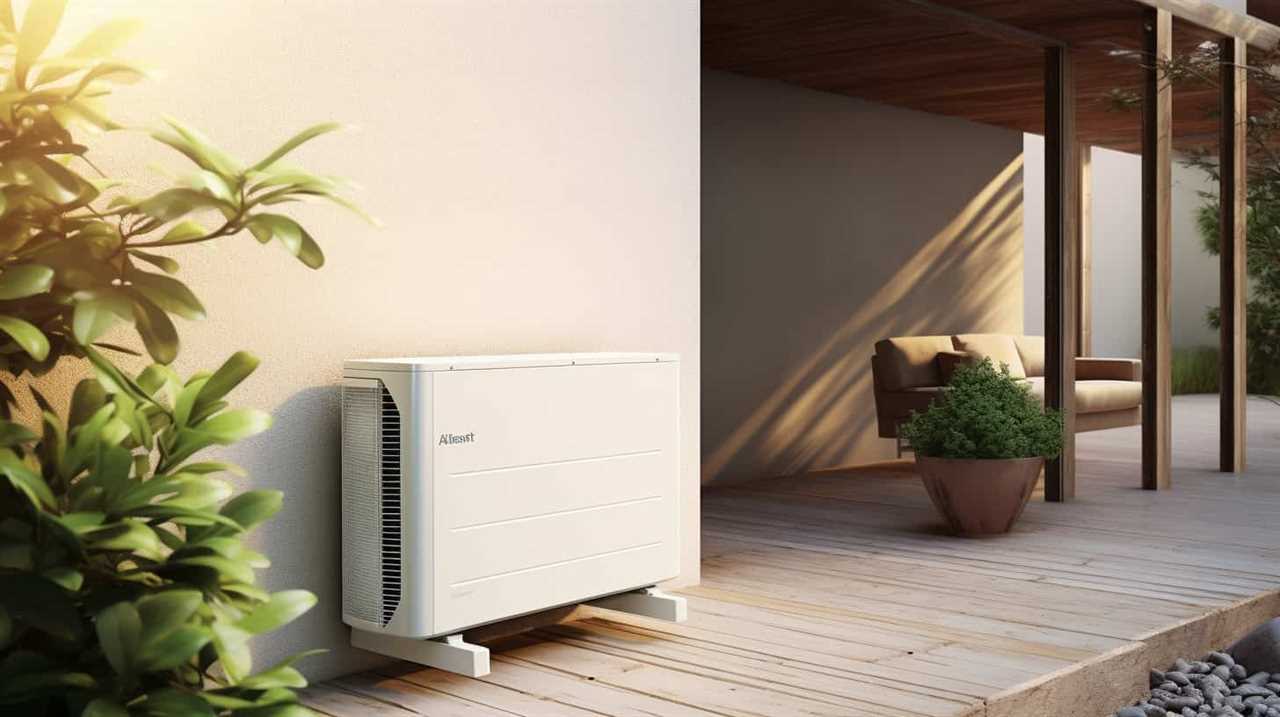
-
Cost-effective Heating Options: Our quiet operation heat pumps offer energy-efficient heating, helping you save on utility bills without compromising on comfort.
Choose quiet operation heat pumps for a tranquil home environment and experience the perfect balance of warmth and serenity.
Reliable Heat Pumps for Long-lasting Home Heating Solutions
Our top-rated heat pumps are known for their reliability and long-lasting performance, making them the ideal choice for efficient home heating solutions. When it comes to sustainable heating options, our heat pumps excel in both performance and energy efficiency. By utilizing advanced technology, our heat pumps are designed to provide consistent and reliable heating throughout your home, while also reducing your carbon footprint.
To further demonstrate the benefits of our heat pumps, we have provided a table below that highlights the cost savings you can expect with our products compared to traditional heating methods.

| Heating Method | Annual Cost Savings |
|---|---|
| Gas Furnace | $500 |
| Electric Furnace | $700 |
| Oil Furnace | $800 |
| Heat Pump (Our Model) | $1000 |
| Wood Stove | $300 |
As you can see, our heat pumps not only provide long-lasting performance, but they also offer significant cost savings over time. Choose our reliable and cost-effective heat pumps for a sustainable heating solution that will stand the test of time.
Frequently Asked Questions
Are Heat Pumps Suitable for All Types of Homes, or Are There Certain Home Requirements for Installation?
Heat pump installation requirements vary depending on the type of home. Common misconceptions include thinking that all homes are suitable for heat pumps. It’s important to consider factors such as insulation, ductwork, and available outdoor space.
How Often Should Heat Pumps Be Serviced or Maintained to Ensure Optimal Performance?
Regular maintenance is crucial for optimal heat pump performance. Signs that indicate servicing is needed include reduced heating/cooling output, strange noises, and increased energy consumption. It’s important to prioritize maintenance to ensure efficiency and innovation.
Can Heat Pumps Be Used as the Sole Heating Solution for Colder Climates?
Using heat pumps as the main heating solution for colder climates has pros and cons. While they are efficient and environmentally friendly, extreme temperatures can affect their performance.
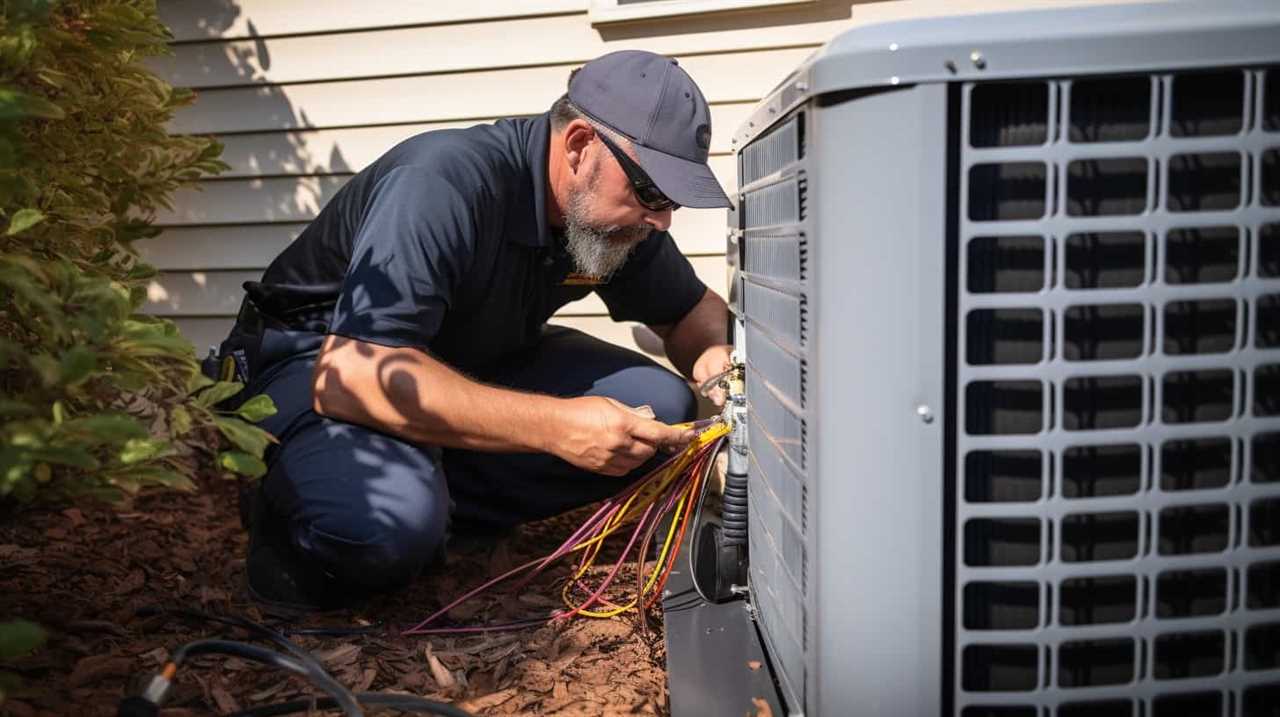
Are There Any Government Incentives or Rebates Available for Purchasing Energy-Efficient Heat Pumps?
Yes, there are government incentives and rebates available for purchasing energy-efficient heat pumps. These incentives aim to promote optimal performance and help meet home requirements for heating and cooling purposes. Regular servicing and maintenance are essential for the sole heating solution in colder climates.
Can Heat Pumps Be Used for Both Heating and Cooling Purposes, or Are They Solely for Heating?
Yes, heat pumps can be used for both heating and cooling purposes. They are highly efficient, providing excellent energy savings and offering the advantage of year-round comfort.
Conclusion
In conclusion, investing in an energy-efficient and high-performance heat pump can provide homeowners with lower utility bills and quick, consistent heating.
Additionally, opting for a smart thermostat compatible heat pump allows for convenient control, while choosing a quiet operation heat pump creates a peaceful home environment.
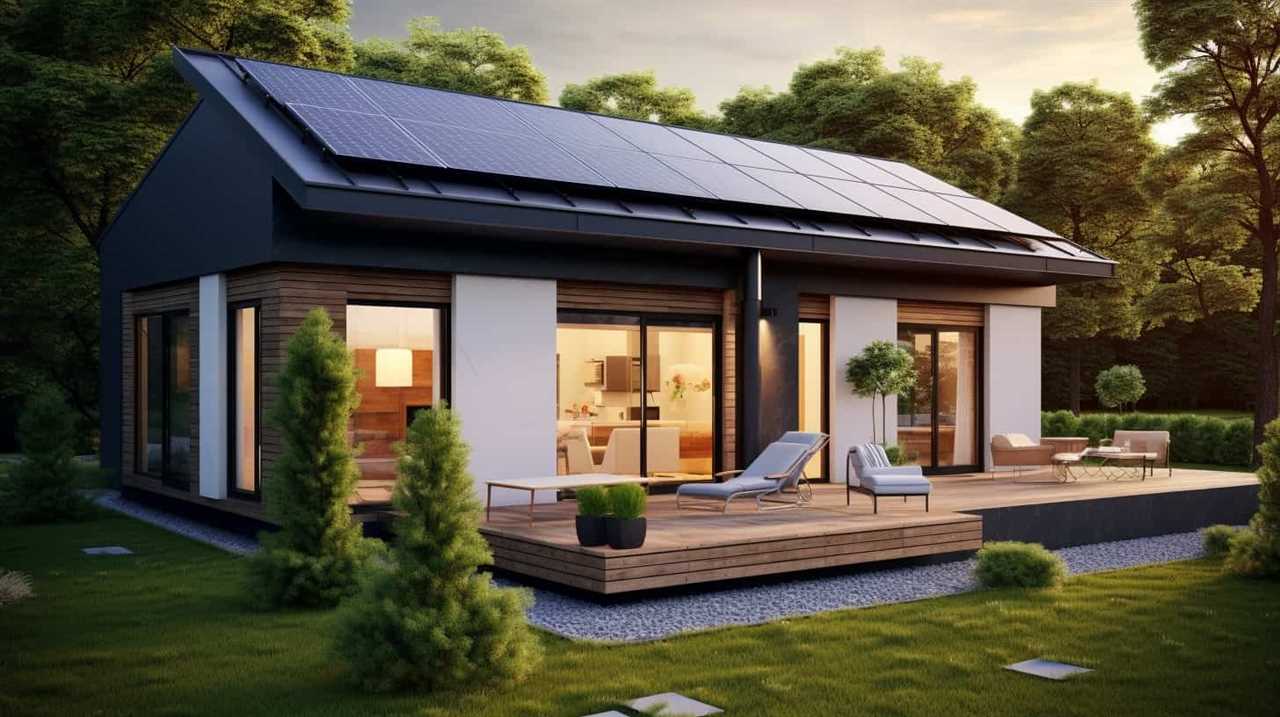
Lastly, reliable heat pumps offer long-lasting solutions for home heating needs.
By considering these factors, homeowners can make informed decisions to achieve ultimate home heating solutions.
Home Heating Solutions
Guide to Affordable Heat Pump Home Heating

Welcome to our guide on cost-effective heat pump heating solutions for homes! We aim to assist you in understanding the advantages and operation of this efficient and budget-friendly heating system.
From understanding how heat pumps work to choosing the right one for your home, we’ve got you covered.
Discover the benefits of heat pump home heating and learn about installation, energy efficiency, and maintenance.
Let us be your trusted source for all things heat pump, as we strive to serve you in the best possible way.

Key Takeaways
- Heat pumps are an energy-efficient and cost-saving option for home heating.
- There are different types of heat pumps available, including air source, ground source, and water source, each with its own advantages and considerations.
- Factors to consider when choosing a heat pump include size, efficiency, noise level, aesthetic appeal, and maintenance requirements.
- Professional installation, regular maintenance, and filter cleaning are essential for optimal performance and longevity of the heat pump.
How Do Heat Pumps Work
How do heat pumps work?
Heat pump technology is based on the principle of transferring heat from one place to another using a small amount of electrical energy. Heat pumps operate by extracting heat from the outdoor air or ground and transferring it to the inside of a building for heating purposes.
This process is achieved through the use of a refrigerant that circulates within the heat pump system. The refrigerant absorbs heat from the outdoor environment, allowing it to transition from a liquid to a gas state. The gas is then compressed, which increases its temperature even further. Finally, the heat is released inside the building, providing comfortable warmth.
This efficient heat pump operation makes it a cost-effective and eco-friendly solution for home heating.

Now, let’s explore the different types of heat pumps for home heating.
Types of Heat Pumps for Home Heating
There are three main types of heat pumps for home heating: air source, ground source, and water source. Each type has its own advantages and disadvantages, so it’s important to choose the right one for your specific needs.
| Type | Advantages | Disadvantages |
|---|---|---|
| Air Source | – Easy installation | – Lower efficiency in extreme cold temperatures |
| – Lower upfront cost | – Can be noisy | |
| – Suitable for small to medium-sized homes | ||
| ————– | ————————————– | ————————————————– |
| Ground Source | – High efficiency | – Higher upfront cost |
| – Suitable for all climates | – Requires more space for installation | |
| – Quiet operation | ||
| ————– | ————————————– | ————————————————– |
| Water Source | – High efficiency | – Limited availability of water sources |
| – Suitable for large homes and commercial buildings | ||
| – Long lifespan |
Choosing the right type of heat pump depends on factors such as the climate in your area, the size of your home, and your budget. Now let’s explore the benefits of heat pump home heating.
BENEFITS OF HEAT PUMP HOME HEATING
Benefits of Heat Pump Home Heating
When it comes to home heating, heat pumps offer several benefits that make them a popular choice among homeowners.
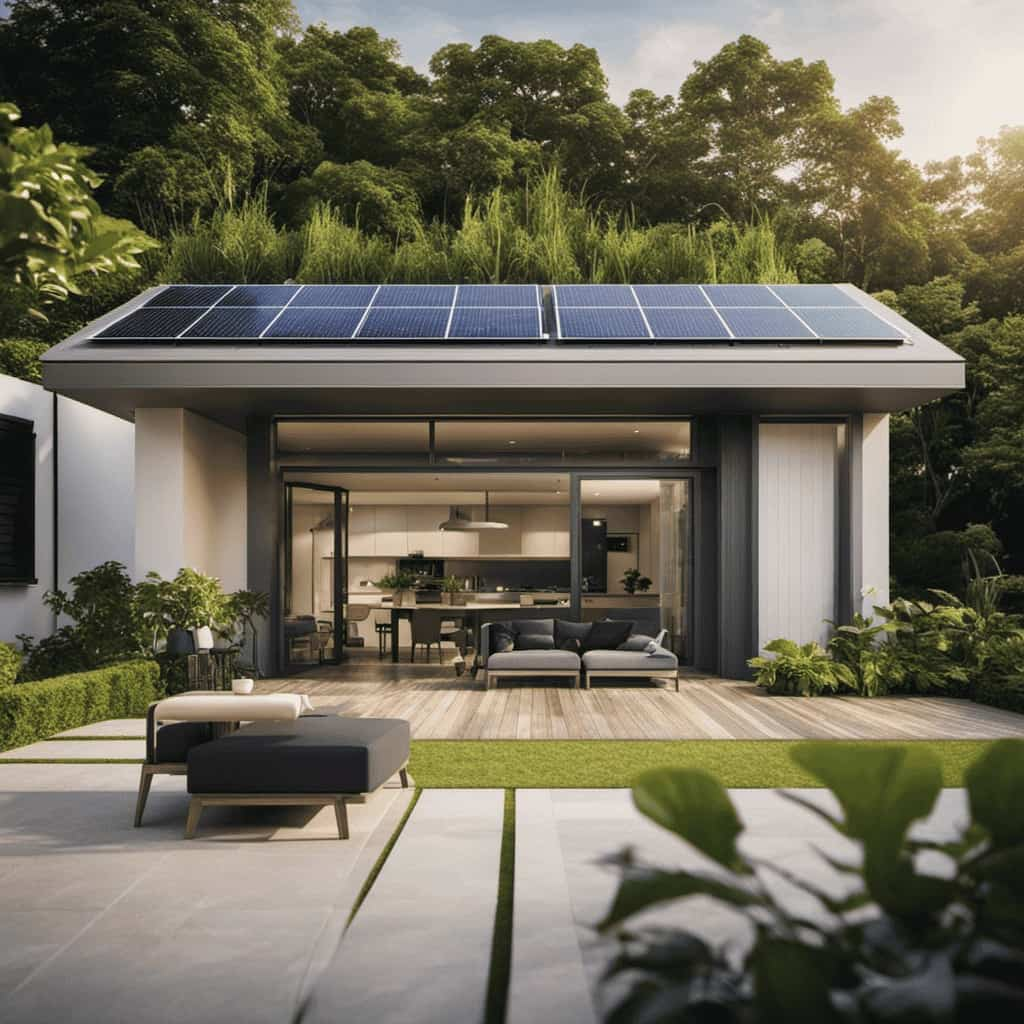
One of the key advantages is their energy efficiency, as heat pumps can produce more heat energy than the electricity they consume.
This not only helps reduce energy consumption but also lowers heating costs, making it a cost-saving option for homeowners.
Energy-Efficient Heating Solution
We can enjoy numerous benefits by choosing a heat pump as our energy-efficient heating solution. Heat pumps are an excellent example of energy-efficient technology, as they can significantly reduce our carbon footprint. Here are four key benefits of heat pump home heating:
-
Energy savings: Heat pumps are highly efficient in converting electricity into heat, resulting in lower energy consumption and reduced utility bills.
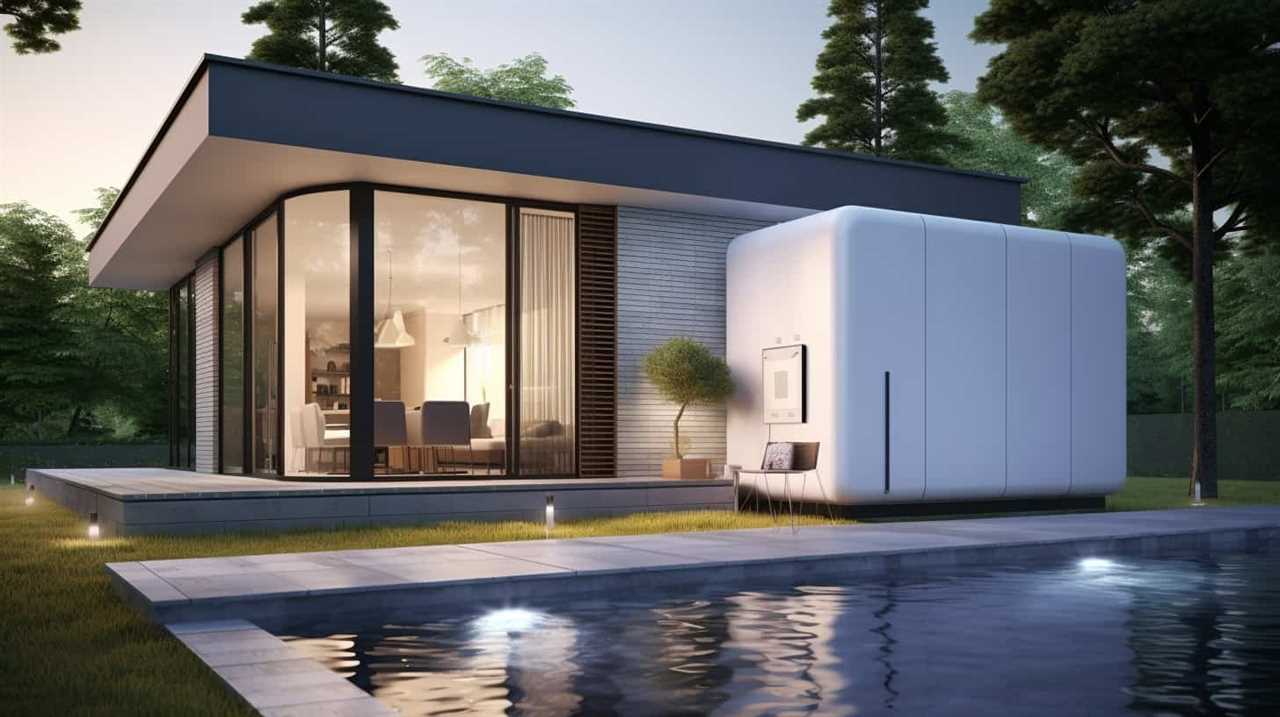
-
Environmental friendliness: By using renewable energy sources, such as the heat from the air or ground, heat pumps produce fewer greenhouse gas emissions compared to traditional heating systems.
-
Consistent comfort: Heat pumps provide both heating and cooling capabilities, ensuring year-round comfort in our homes.
-
Long-term cost savings: Although the initial installation cost may be higher, heat pumps offer long-term savings through reduced energy consumption and lower maintenance requirements.
Cost-Saving Heating Option
One of the benefits of choosing a heat pump as our cost-saving heating option is the potential for long-term energy savings.
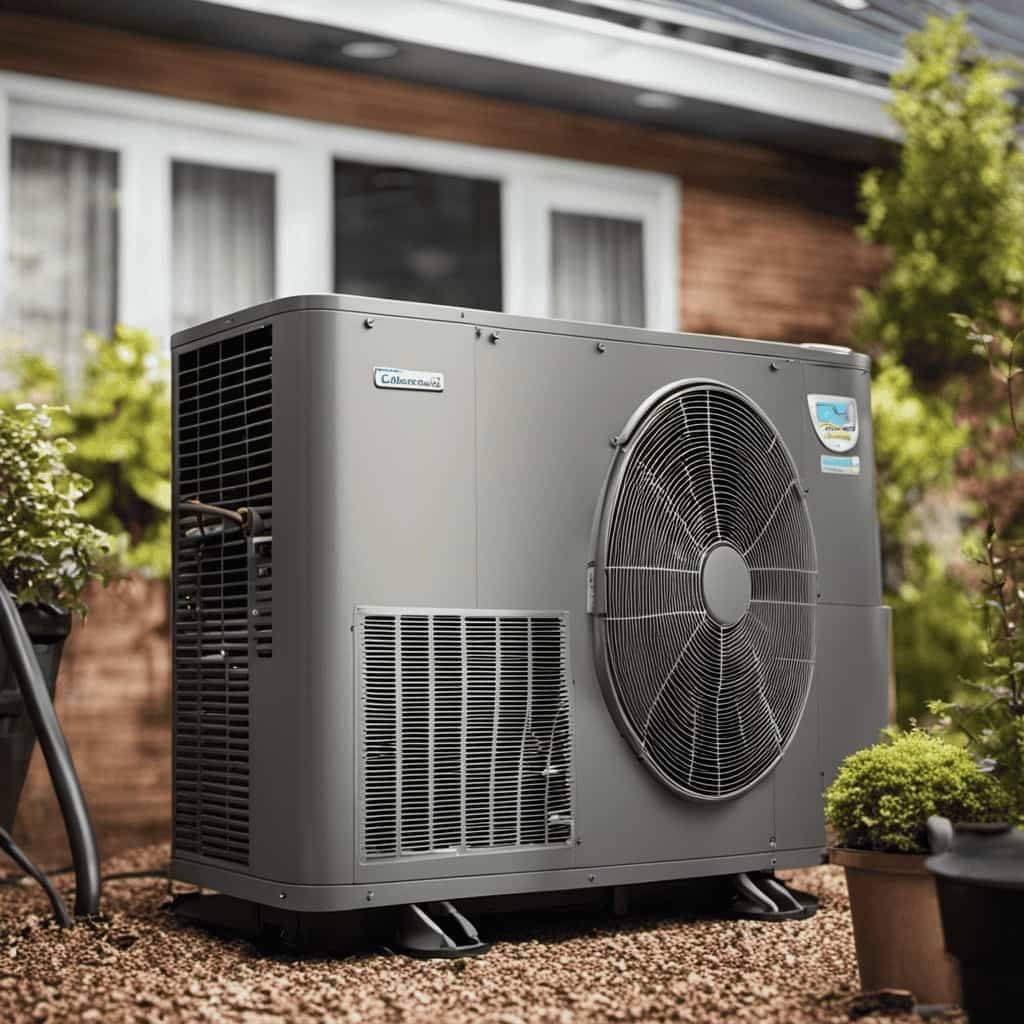
Heat pumps are known for their high efficiency and ability to transfer heat from one place to another, rather than generating it through combustion. This makes them a cost-effective heating solution, as they require less energy to operate compared to traditional heating systems.
Heat pumps use electricity to extract heat from the air, ground, or water and transfer it indoors. By utilizing energy-saving technology, heat pumps can provide efficient heating while reducing energy consumption and lowering utility bills.
Additionally, heat pumps can also be used for cooling during the summer months, offering year-round comfort and further enhancing their value as energy-saving solutions.
Factors to Consider When Choosing a Heat Pump
There are four important factors to consider when choosing a heat pump for your home. These factors will help you make an informed decision and ensure that you select the right heat pump for your needs.

-
Size: It’s crucial to choose the right size of heat pump for your home. A heat pump that’s too small will struggle to heat your home efficiently, while one that’s too large will consume more energy than necessary.
-
Efficiency: Look for a heat pump with a high efficiency rating. This will ensure that you get the most out of your heating system while keeping energy costs low.
-
Installation Process: Consider the complexity of the installation process. Some heat pumps may require additional modifications to your home’s existing heating system, which could increase the overall cost and time required.
-
Cost: Finally, take into account the overall cost of the heat pump, including installation, maintenance, and operation. While it may be tempting to choose the cheapest option, it’s important to consider the long-term savings and efficiency of the heat pump.

Installing a Heat Pump: What You Need to Know
When installing a heat pump, it’s important to understand the necessary steps and considerations. To ensure a successful installation, here are some heat pump installation tips to keep in mind.
-
First, it’s crucial to find the right heat pump for your home. Consider factors such as the size of your space, climate conditions, and energy efficiency ratings. Look for a heat pump that’s properly sized to provide optimal heating and cooling.
-
It’s also essential to hire a professional HVAC technician for the installation process. They’ve the experience and expertise to properly install the heat pump and ensure it functions efficiently.
-
Additionally, make sure to follow the manufacturer’s instructions and guidelines for installation. Proper installation won’t only maximize the performance of your heat pump but also extend its lifespan.

Energy Efficiency and Cost Savings With Heat Pumps
When it comes to heat pumps, there are several key points to consider: lower energy bills, environmental friendliness, and long-term cost savings.
Heat pumps are highly energy efficient, meaning they use less energy to produce the same amount of heat compared to traditional heating systems. This translates to lower energy bills and reduced carbon emissions, making heat pumps an environmentally friendly option.
Additionally, while the upfront cost of installing a heat pump may be higher, the long-term cost savings from lower energy bills can outweigh the initial investment.
Lower Energy Bills
We usually experience lower energy bills when we use heat pumps due to their energy efficiency and cost-saving features. Here are some energy saving tips and affordable home insulation options that can further help reduce your energy bills:
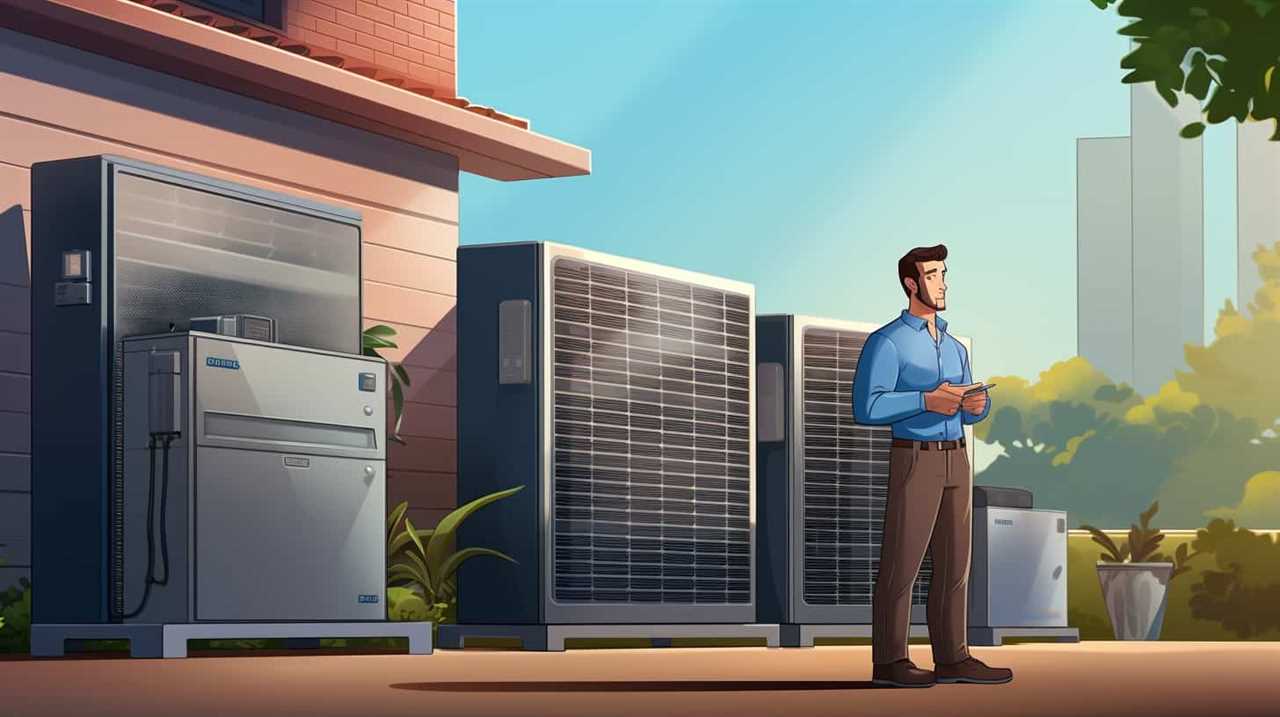
-
Proper insulation: Ensure your home is well-insulated to prevent heat loss and improve energy efficiency. Consider adding insulation to your walls, attic, and floors.
-
Air sealing: Seal any gaps or cracks in your windows, doors, and walls to prevent drafts and heat loss. This will help your heat pump operate more efficiently.
-
Programmable thermostat: Install a programmable thermostat to control and optimize your heat pump’s temperature settings based on your schedule. This can lead to significant energy savings.
-
Regular maintenance: Schedule regular maintenance for your heat pump to ensure optimal performance and energy efficiency.
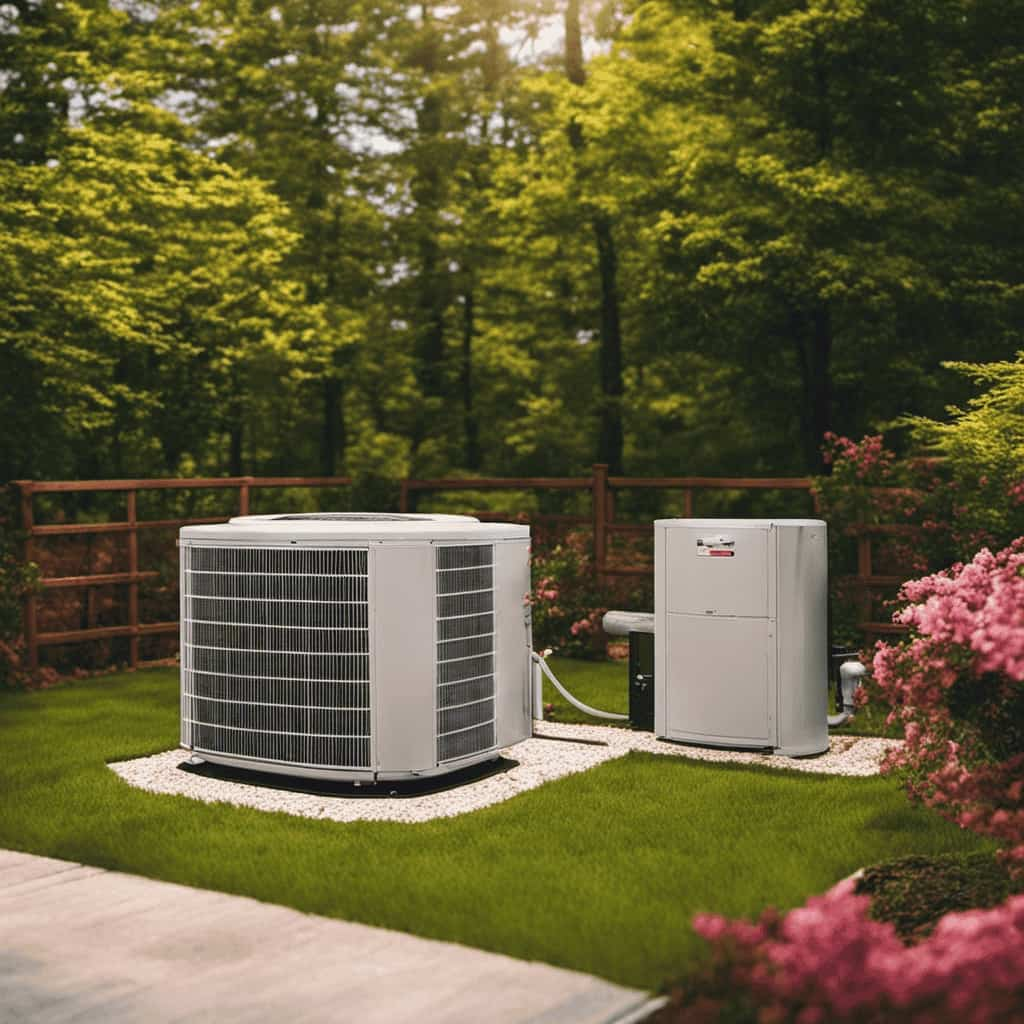
By implementing these energy saving tips and investing in affordable home insulation, you can further reduce your energy bills while enjoying the benefits of heat pump home heating.
Now, let’s discuss the environmentally friendly option of heat pumps.
Environmentally Friendly Option
An environmentally friendly option for home heating is to use heat pumps, which offer energy efficiency and cost savings.
Heat pumps are a renewable energy source that can significantly reduce the environmental impact associated with traditional heating systems. Unlike combustion-based heating systems that rely on fossil fuels, heat pumps work by transferring heat from one place to another, using a small amount of electricity to operate. This process makes them highly efficient, as they can deliver more energy than they consume.
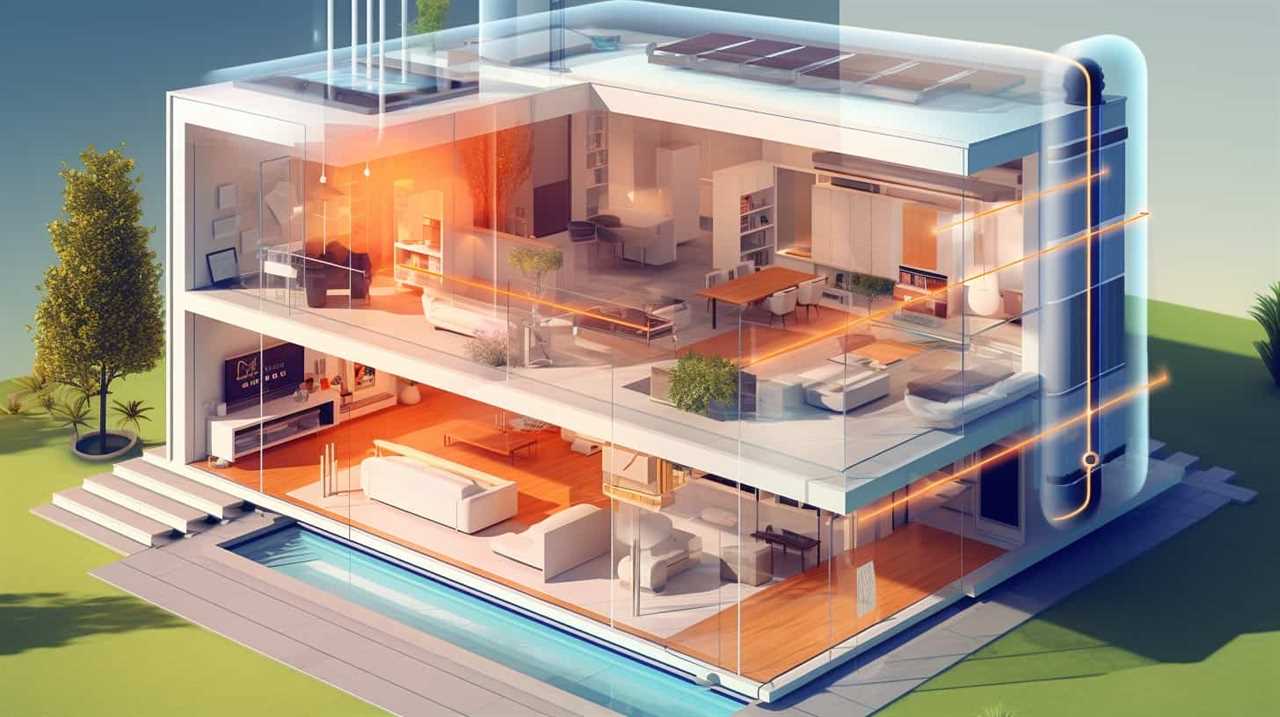
By harnessing the natural heat in the air or ground, heat pumps provide a sustainable and low-carbon alternative for heating homes.
Additionally, heat pumps can save homeowners money on their energy bills, as they require less energy to operate compared to conventional heating systems.
Long-Term Cost Savings
By maximizing energy efficiency and providing long-term cost savings, heat pumps are an ideal choice for home heating. Here are four reasons why heat pumps offer significant cost savings:
-
Energy Efficient Appliances: Heat pumps are highly energy efficient, converting a small amount of electrical energy into a larger amount of heat energy. This means they consume less energy compared to traditional heating systems, resulting in lower utility bills.
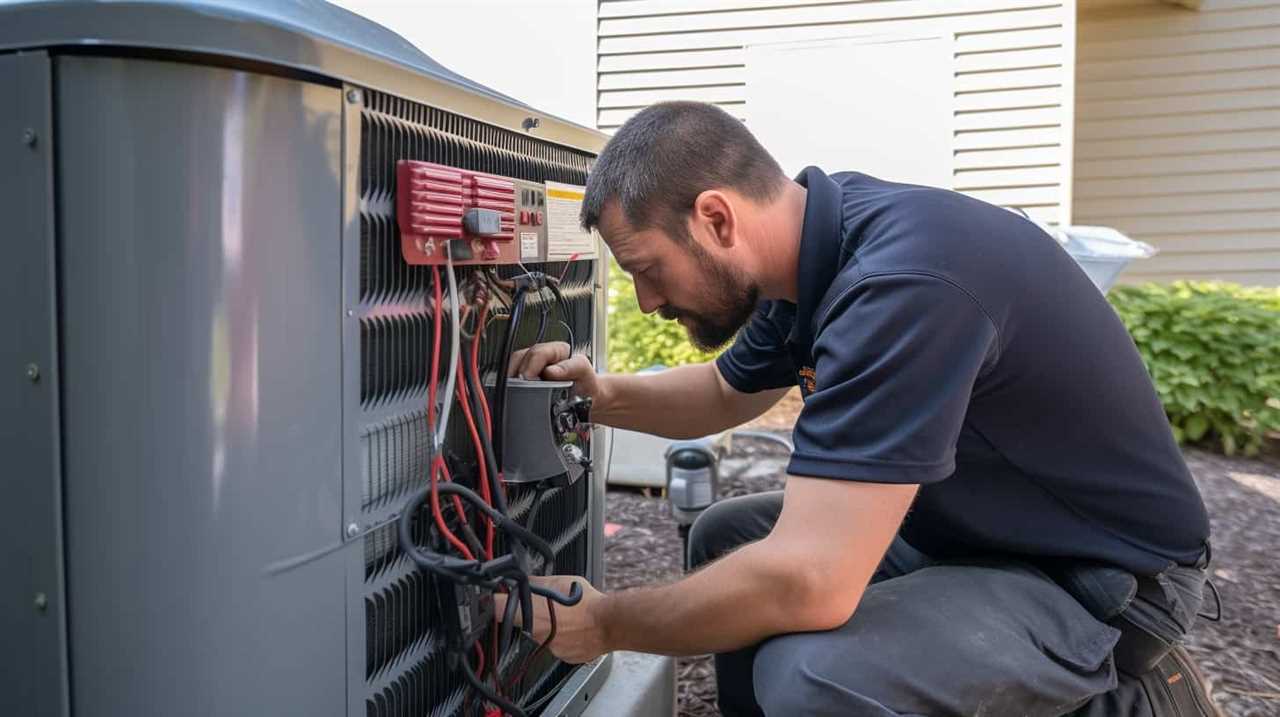
-
Reduced Heating Costs: Heat pumps utilize the heat from the outside air or ground, which is a free and renewable energy source. By harnessing this heat, heat pumps can provide consistent heating at a fraction of the cost of other heating systems.
-
Lower Maintenance Expenses: Heat pumps have fewer moving parts compared to combustion-based heating systems, resulting in lower maintenance and repair costs over time.
-
Insulation Techniques: To maximize the efficiency of heat pumps, it’s crucial to have proper insulation in your home. By insulating walls, floors, and ceilings, you can reduce heat loss and ensure that the heat pump operates optimally, leading to further cost savings.
Investing in a heat pump and implementing insulation techniques can provide significant long-term cost savings while keeping your home warm and comfortable.

Maintaining and Troubleshooting Your Heat Pump
Regularly maintaining and troubleshooting your heat pump is essential for optimal performance and energy efficiency. To keep your heat pump operating at its best, here are some maintaining tips to follow.
- First, make sure to regularly clean or replace the air filters. Dirty filters restrict airflow and reduce the system’s efficiency.
- Second, keep the outdoor unit clear of debris, such as leaves and branches, to prevent airflow obstruction.
- Third, inspect and clean the coils annually to remove any dirt buildup.
- Lastly, schedule professional maintenance at least once a year to ensure all components are functioning correctly.
Despite regular maintenance, common issues can still arise with heat pumps. One common issue is a refrigerant leak, which can cause reduced heating or cooling capacity. Another issue is a frozen evaporator coil, usually caused by restricted airflow or low refrigerant levels. Additionally, electrical problems, such as blown fuses or faulty wiring, can affect the heat pump’s operation.
If you encounter any of these issues, it’s recommended to contact a qualified technician for troubleshooting and repairs. Remember, proper maintenance and timely troubleshooting can help prolong the lifespan of your heat pump and keep it running efficiently.
Comparing Heat Pumps to Other Heating Systems
The heat pump offers several advantages over traditional heating systems. Here are four reasons why a heat pump may be a better choice compared to other heating systems:

-
Energy Efficiency: Heat pumps are incredibly energy efficient, providing up to three times more heating power compared to the electricity they consume. This makes them a cost-effective option for long-term use.
-
Versatility: Heat pumps can be used for both heating and cooling, eliminating the need for separate systems. This versatility allows homeowners to save money on installation, maintenance, and energy bills.
-
Environmental Friendliness: Heat pumps produce fewer greenhouse gas emissions compared to traditional furnaces, making them a greener option. By using renewable energy sources, such as air or ground heat, heat pumps contribute to a more sustainable future.
-
Consistent Comfort: Heat pumps provide consistent heating throughout your home, without the uneven temperatures that electric heaters often produce. This ensures a comfortable living environment for you and your family.

Frequently Asked Questions
Can a Heat Pump Be Used for Both Heating and Cooling Purposes?
Yes, a heat pump can be used for both heating and cooling purposes. It is an efficient system that provides the benefits of heating in the winter and cooling in the summer.
Are Heat Pumps Noisy When in Operation?
Heat pump noise levels vary depending on the model and installation. To reduce noise, consider locating the heat pump away from living areas, using sound barriers, and regular maintenance to ensure proper functioning.
How Long Does a Heat Pump Typically Last Before Needing to Be Replaced?
Heat pumps typically last around 15-20 years before needing replacement. Regular heat pump maintenance, such as cleaning the coils and filters, can extend their lifespan. Signs of a failing heat pump include reduced heating or cooling capacity and frequent breakdowns.
Can a Heat Pump Be Installed in Any Type of Home, or Are There Specific Requirements?
Yes, there are specific requirements for heat pump installation. Factors like home size, insulation, and existing heating system affect compatibility. A professional assessment is needed to determine if a heat pump can be installed in any type of home.
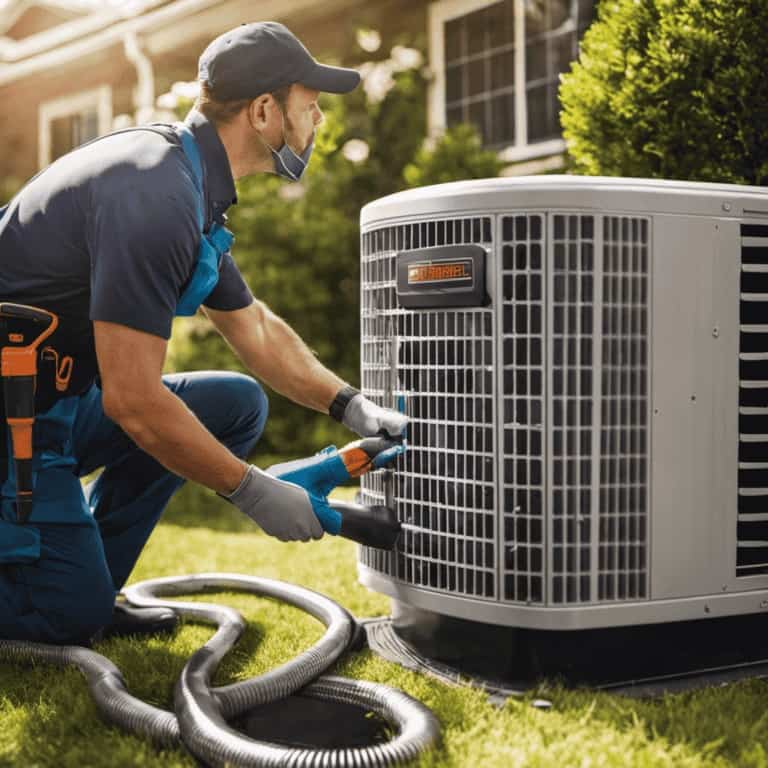
Are There Any Government Incentives or Rebates Available for Installing a Heat Pump in My Home?
There are government incentives and energy rebates available for installing a heat pump in our home. These incentives vary depending on location and can greatly help offset the cost of installation and operation.
Conclusion
In conclusion, heat pumps offer an affordable and efficient solution for home heating. With their ability to transfer heat from the outside air or ground, they provide consistent warmth throughout the year.
By choosing the right type of heat pump and considering factors such as size, energy efficiency, and maintenance, homeowners can enjoy the benefits of cost savings and environmental friendliness.
So, when it comes to heating your home, consider the reliable and versatile option of a heat pump.
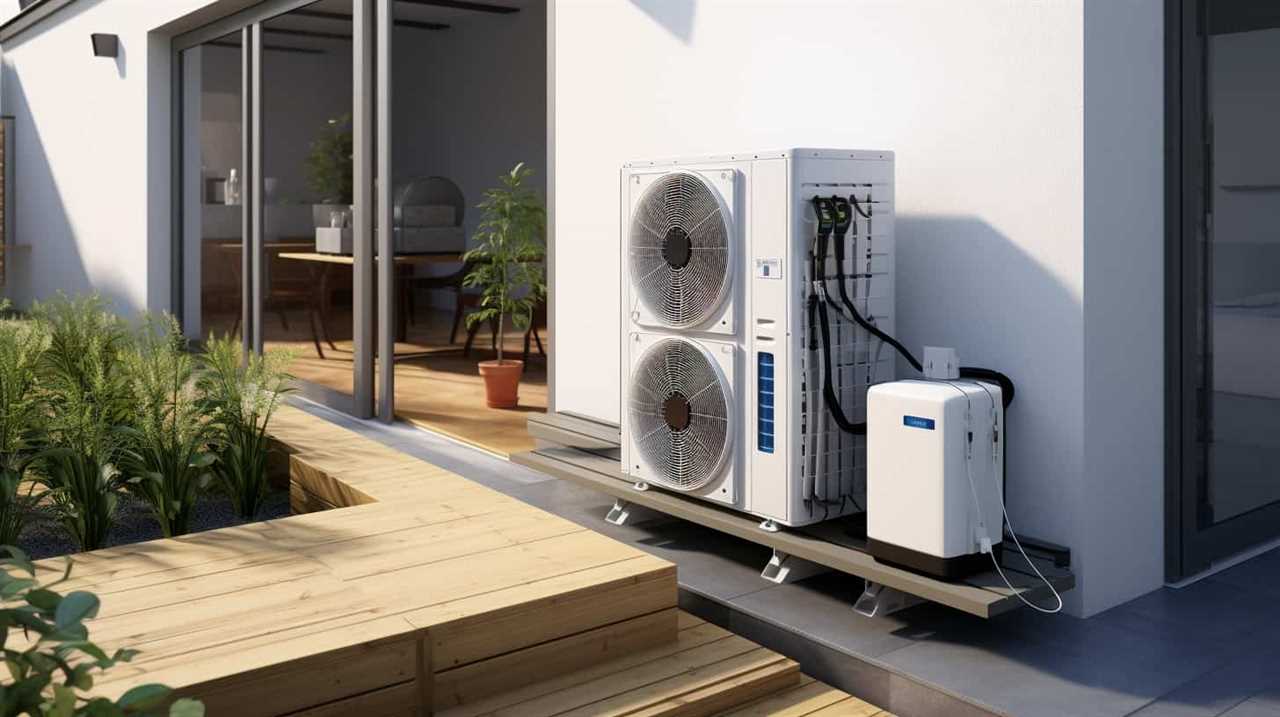
-

 Residential and Commercial Applications3 months ago
Residential and Commercial Applications3 months agoBest Amana Heat Pump Reviews
-

 Thermal Energy Transfer3 months ago
Thermal Energy Transfer3 months agoBreakthroughs in Modern Heat Pump Systems: Thermal Energy Edition
-

 Residential and Commercial Applications3 months ago
Residential and Commercial Applications3 months agoBest Heat Pump
-

 Geothermal Heat Pumps3 months ago
Geothermal Heat Pumps3 months agoUpgrade Your Comfort with Our Efficient HVAC Systems
-

 Air Conditioning2 months ago
Air Conditioning2 months agoExploring Energy-Efficient Air Conditioning Heat Pumps
-

 Geothermal Heat Pumps3 months ago
Geothermal Heat Pumps3 months agoInnovative Geothermal Heat Pump Manufacturers Revolutionize Energy Efficiency
-

 Thermal Energy Transfer2 weeks ago
Thermal Energy Transfer2 weeks agoBoost Your Heat Pump Efficiency: Interactive Guide
-

 Residential and Commercial Applications3 months ago
Residential and Commercial Applications3 months agoBest Portable Heat Pump Heat & AC










